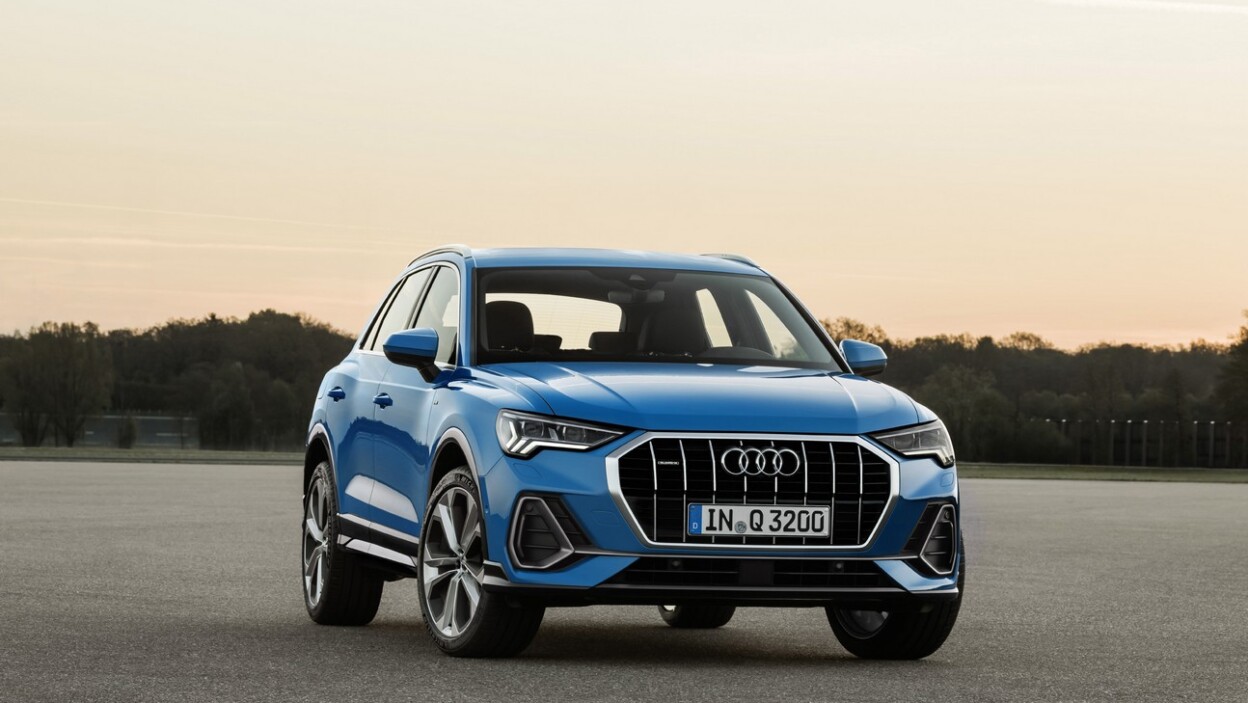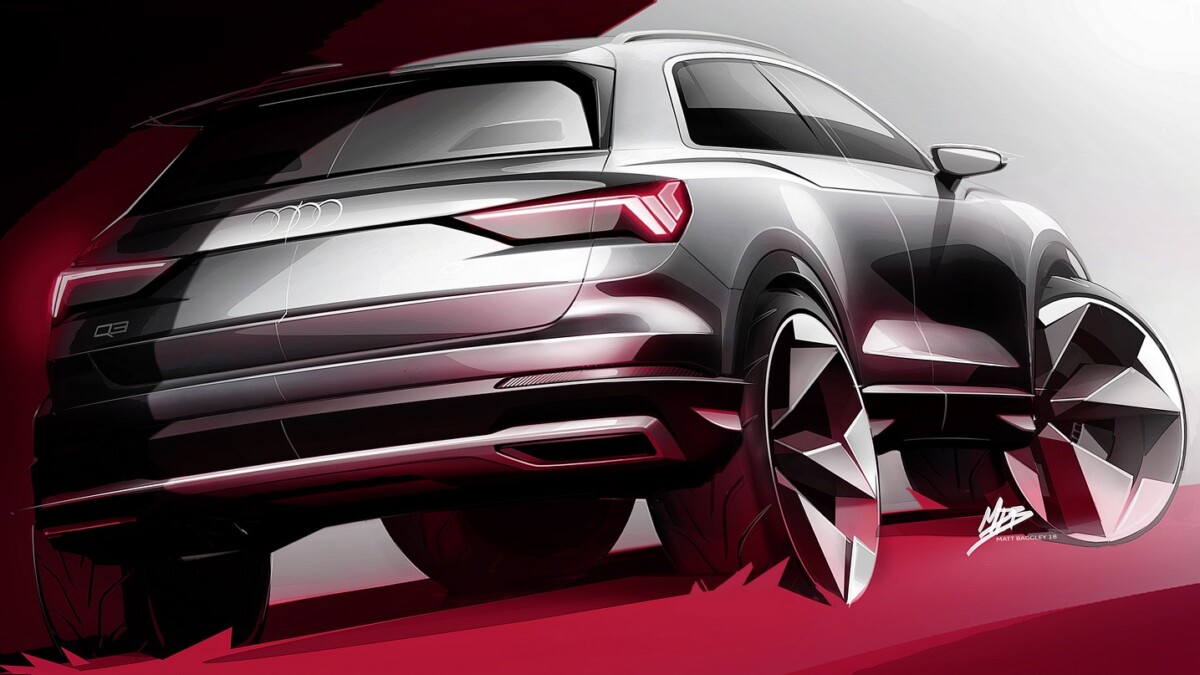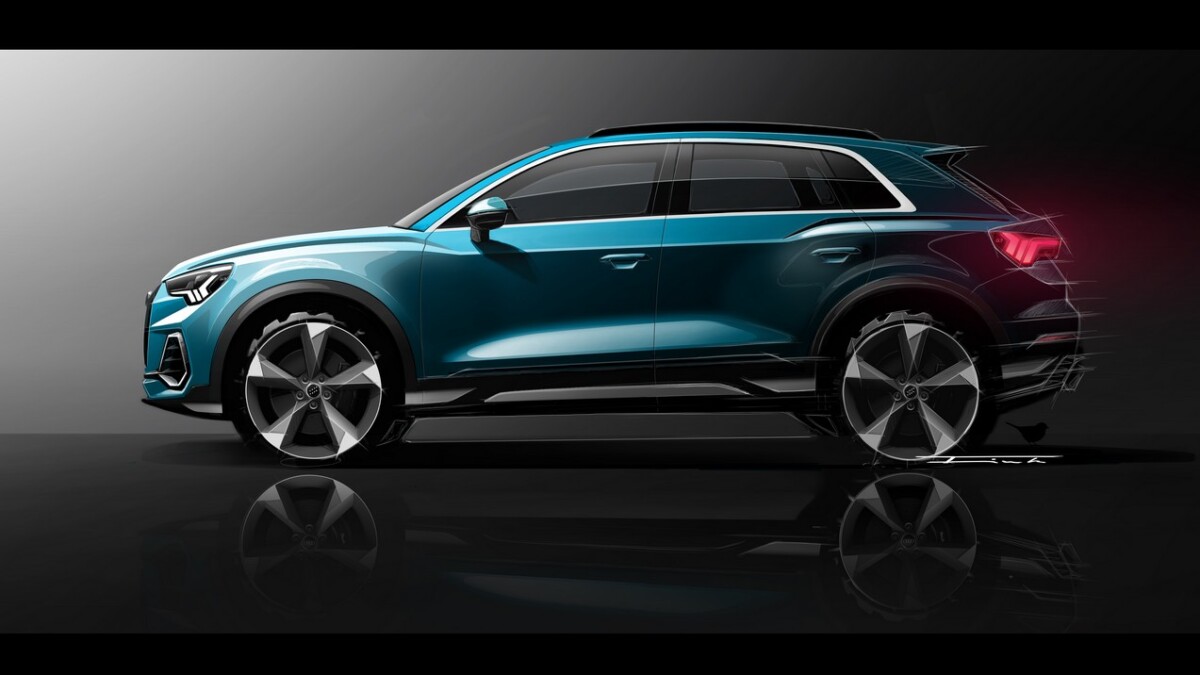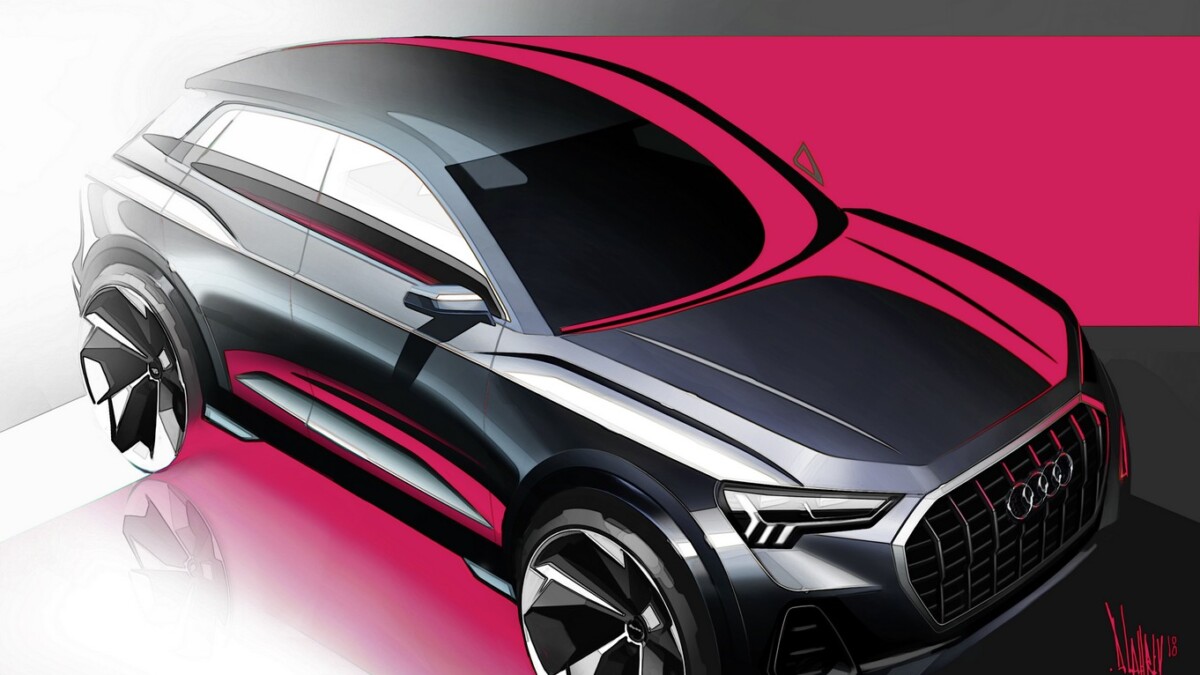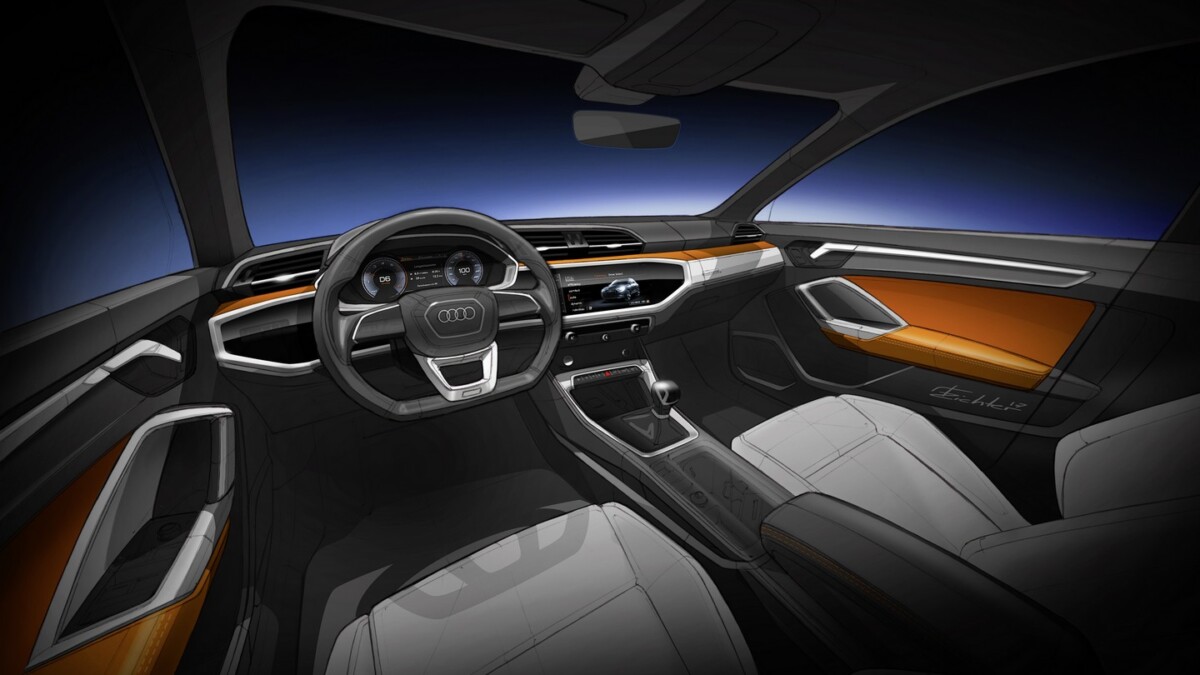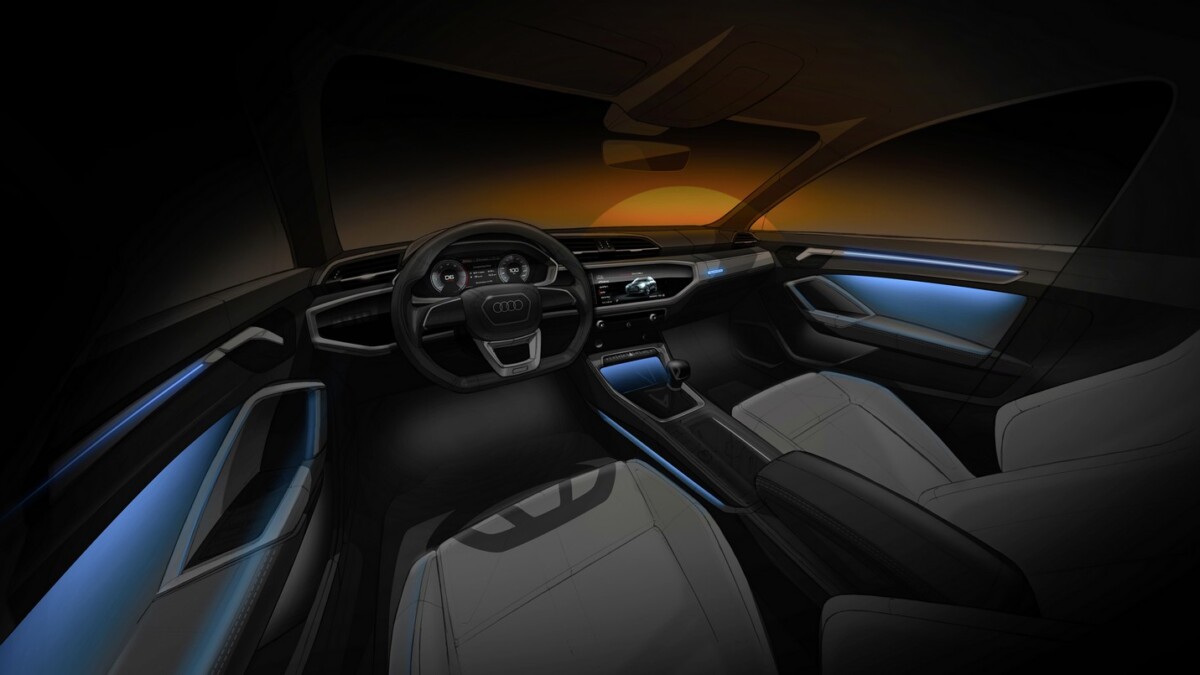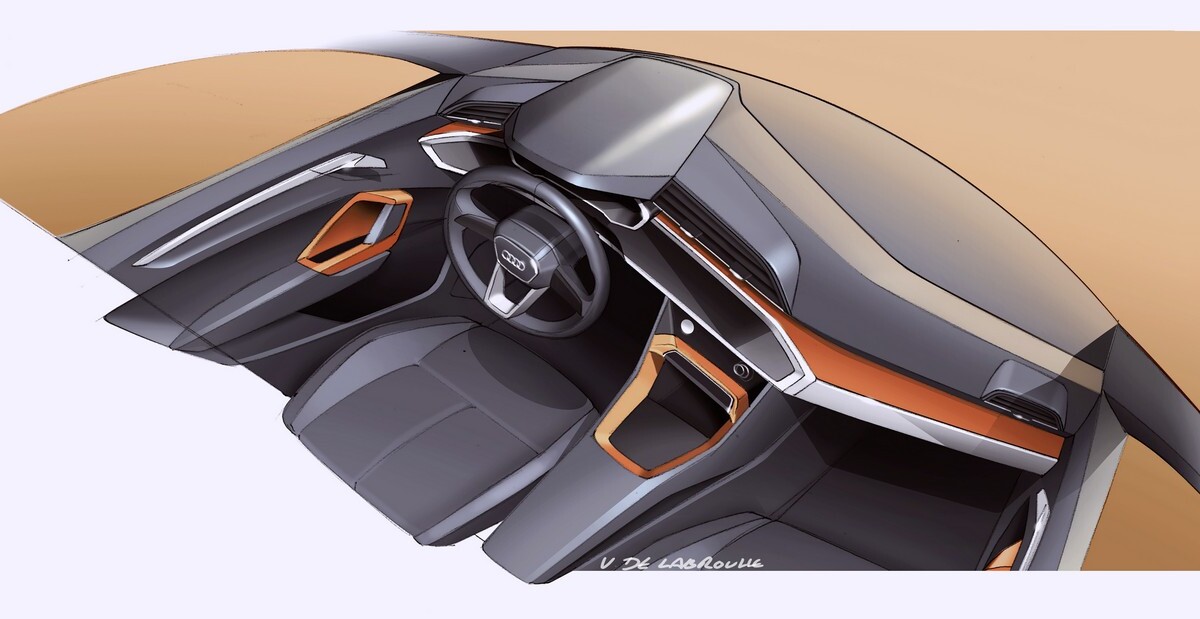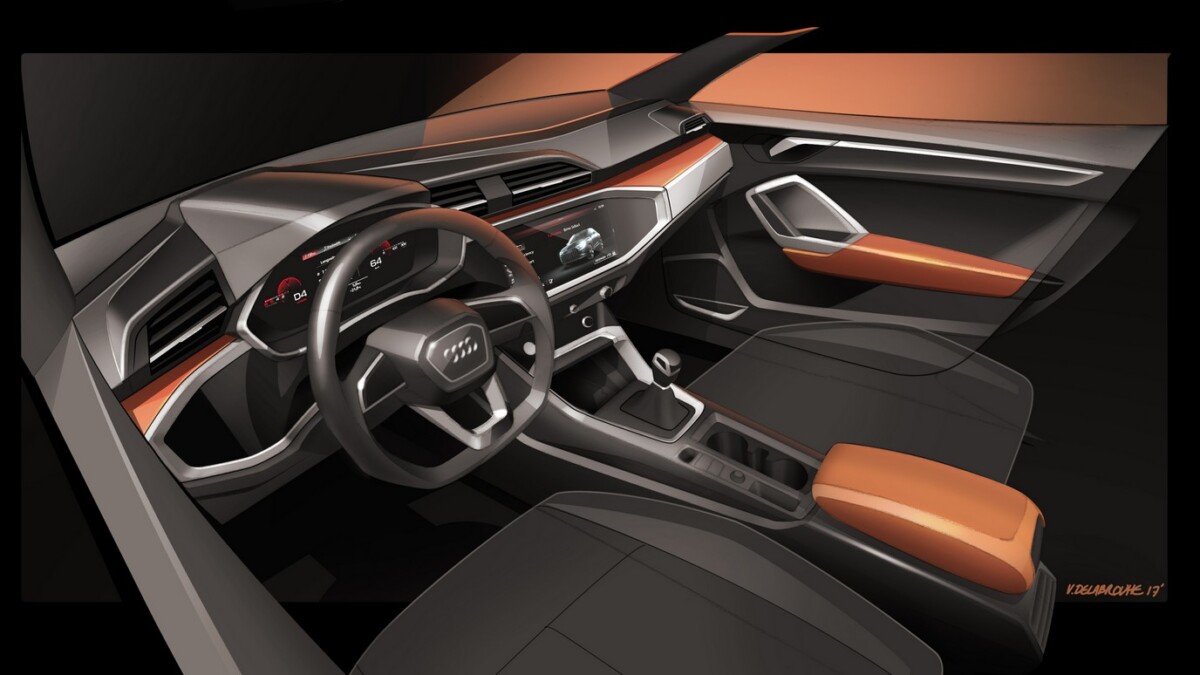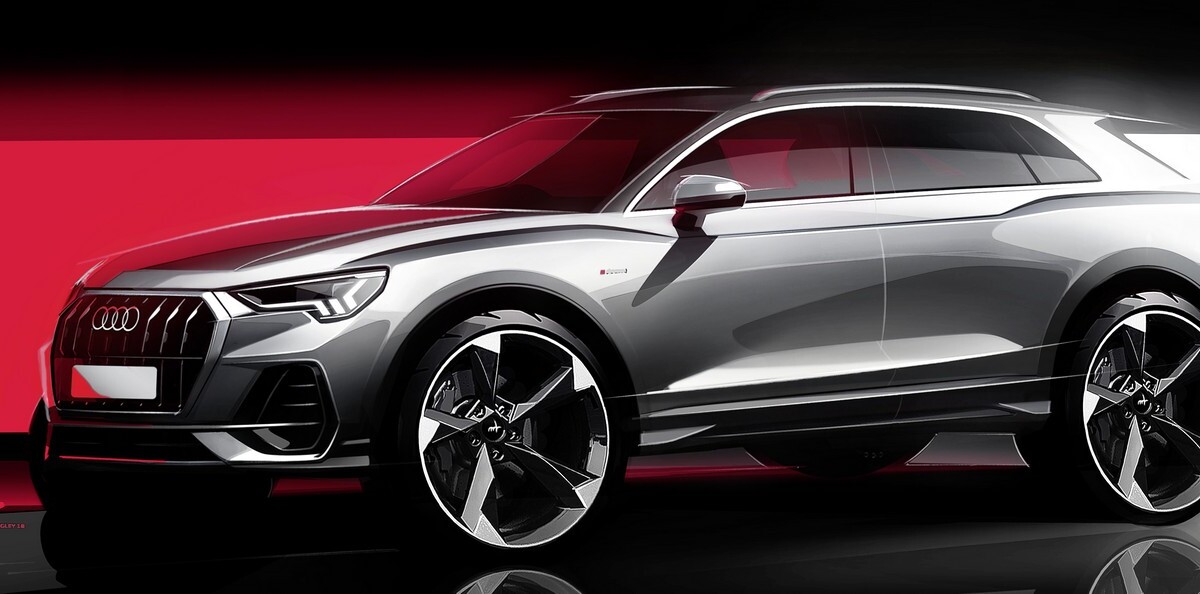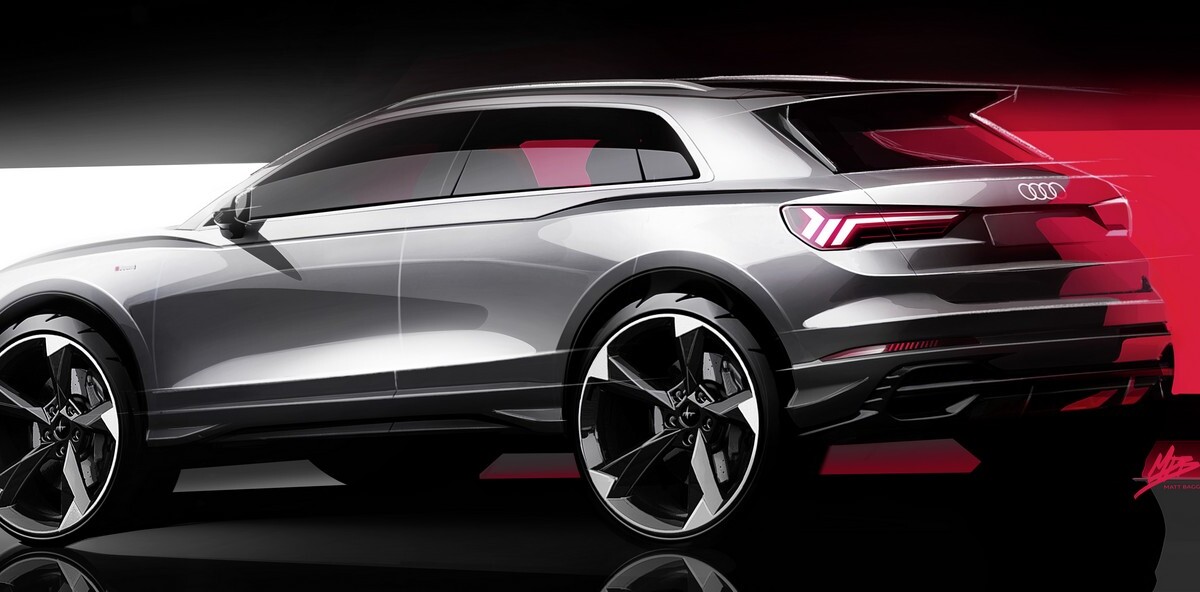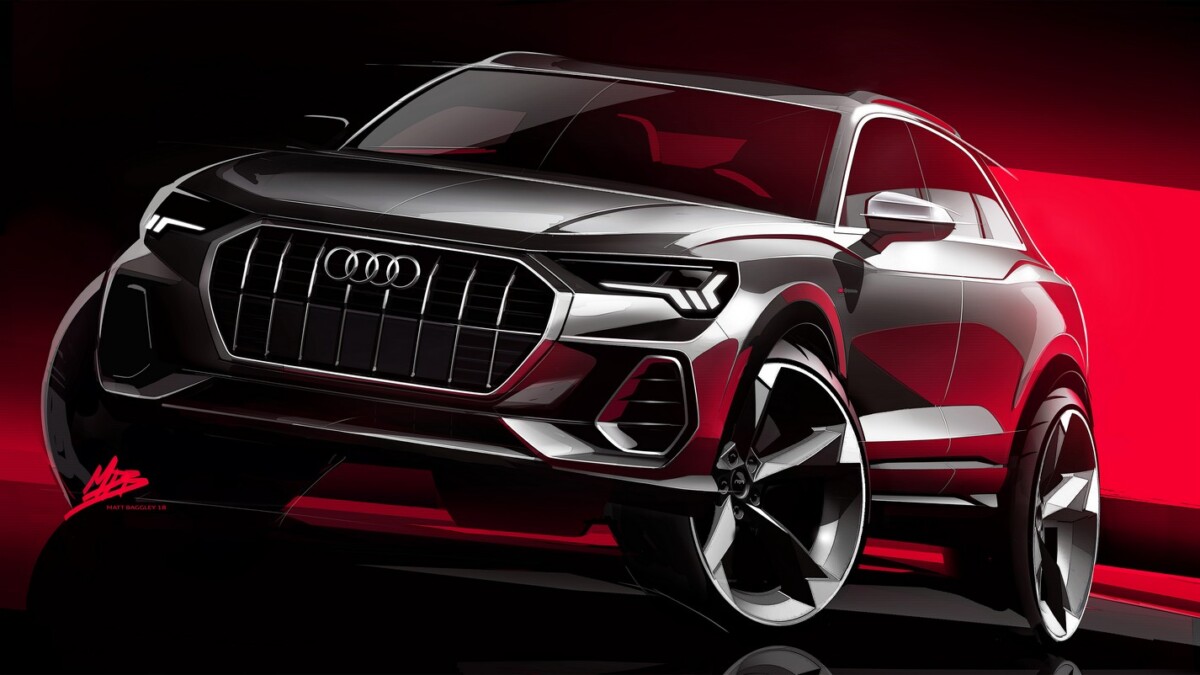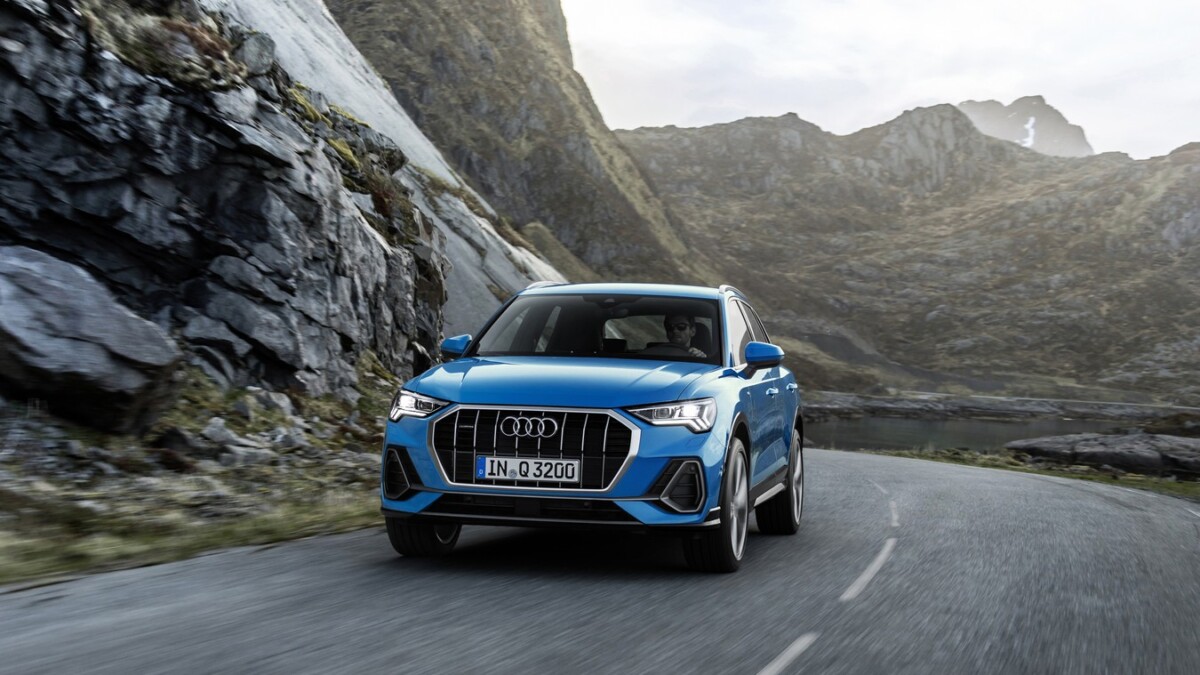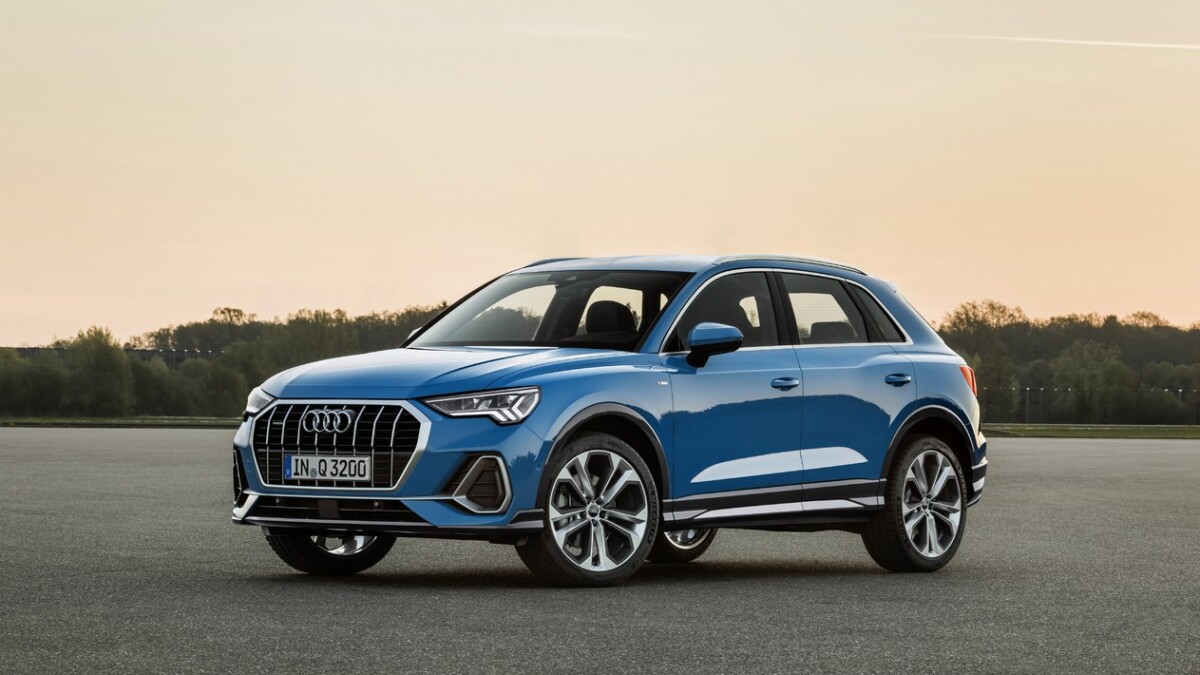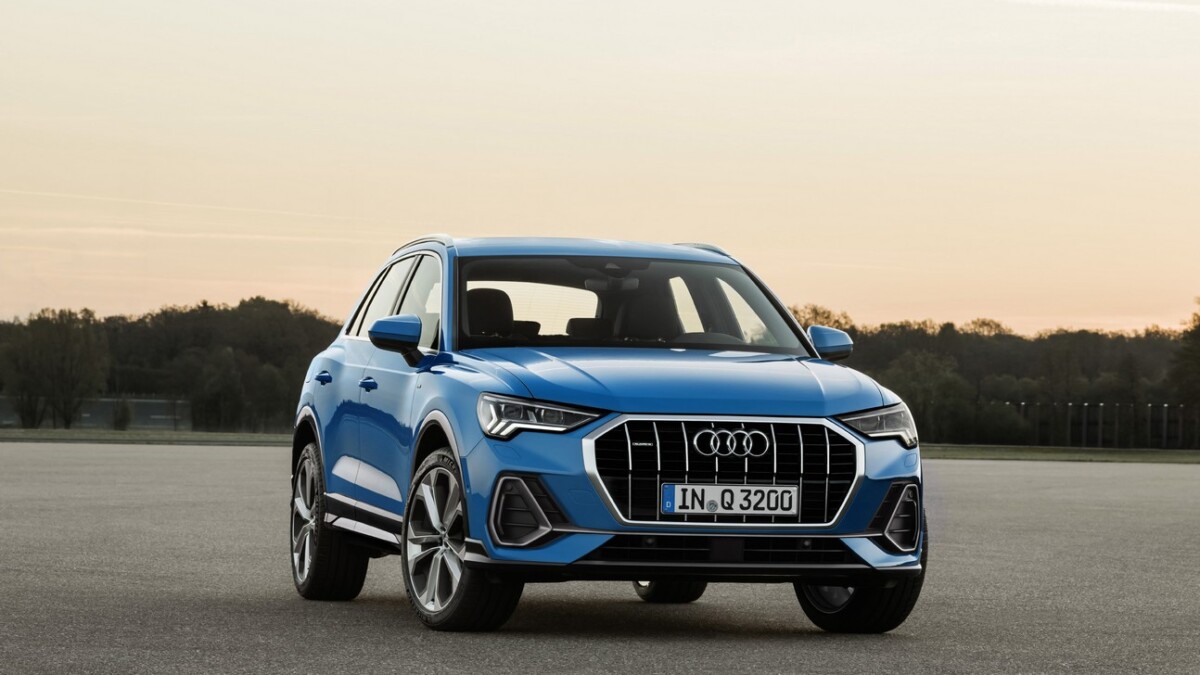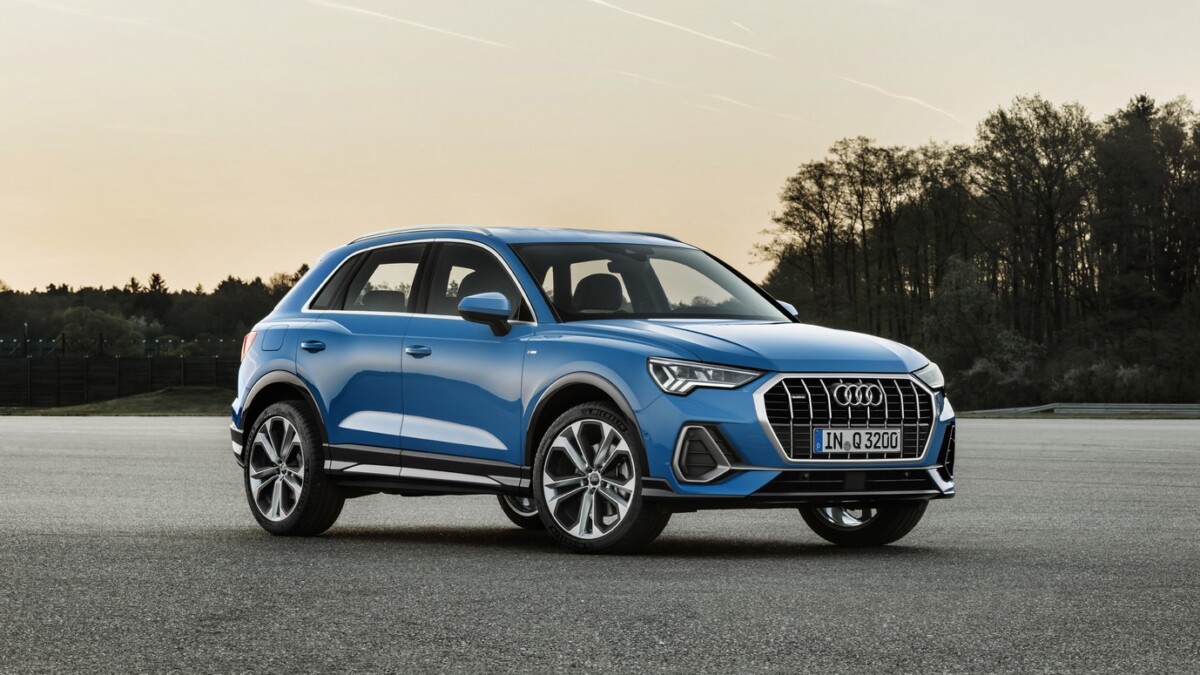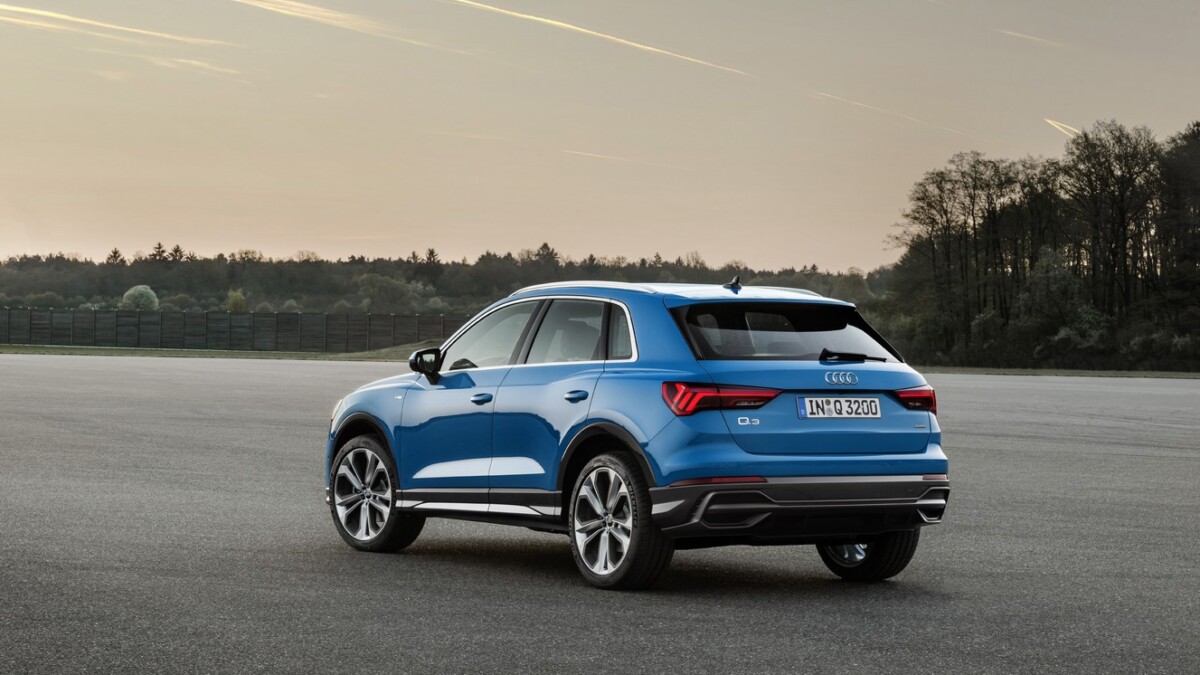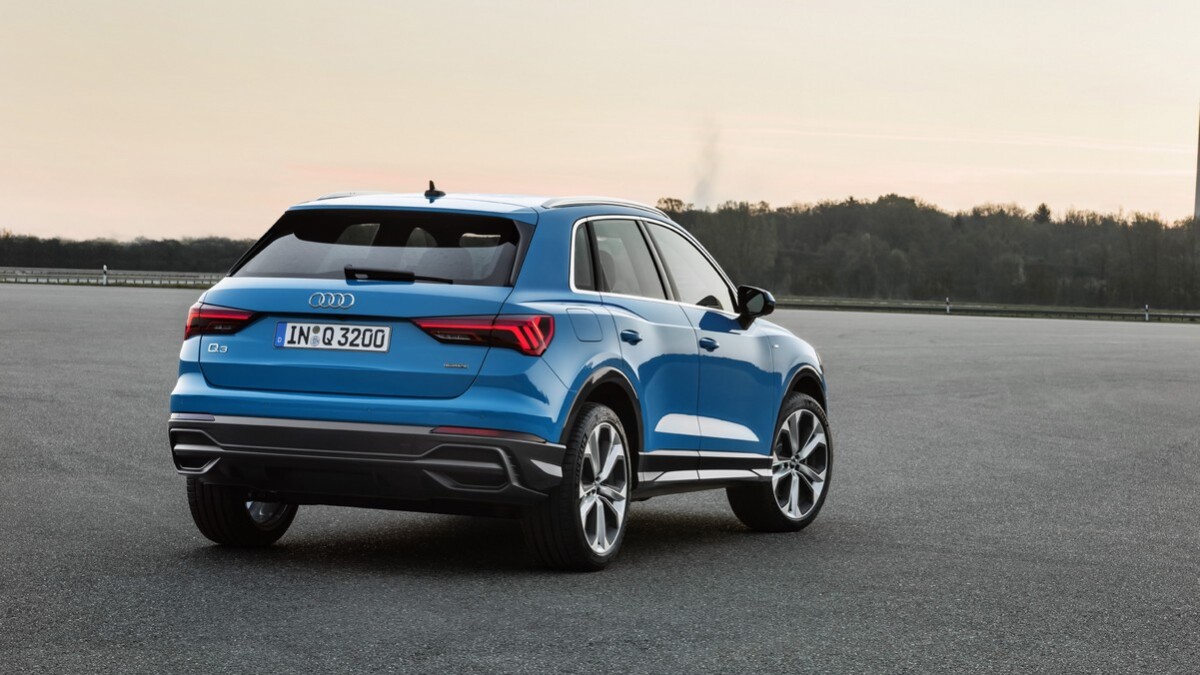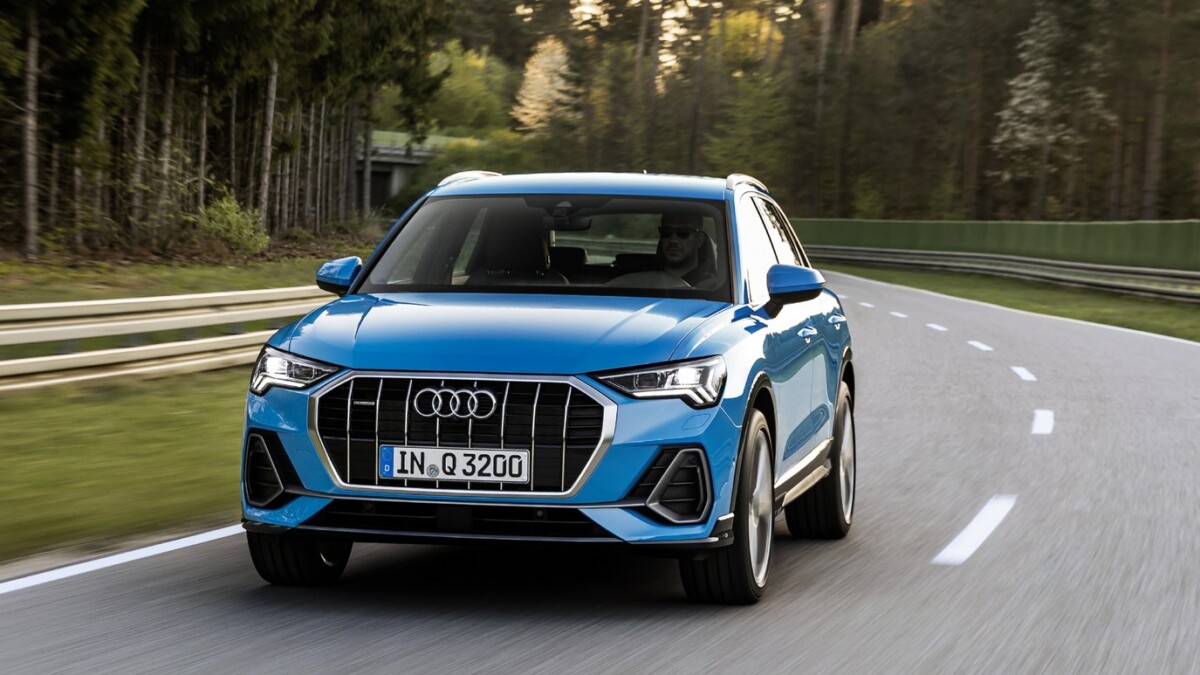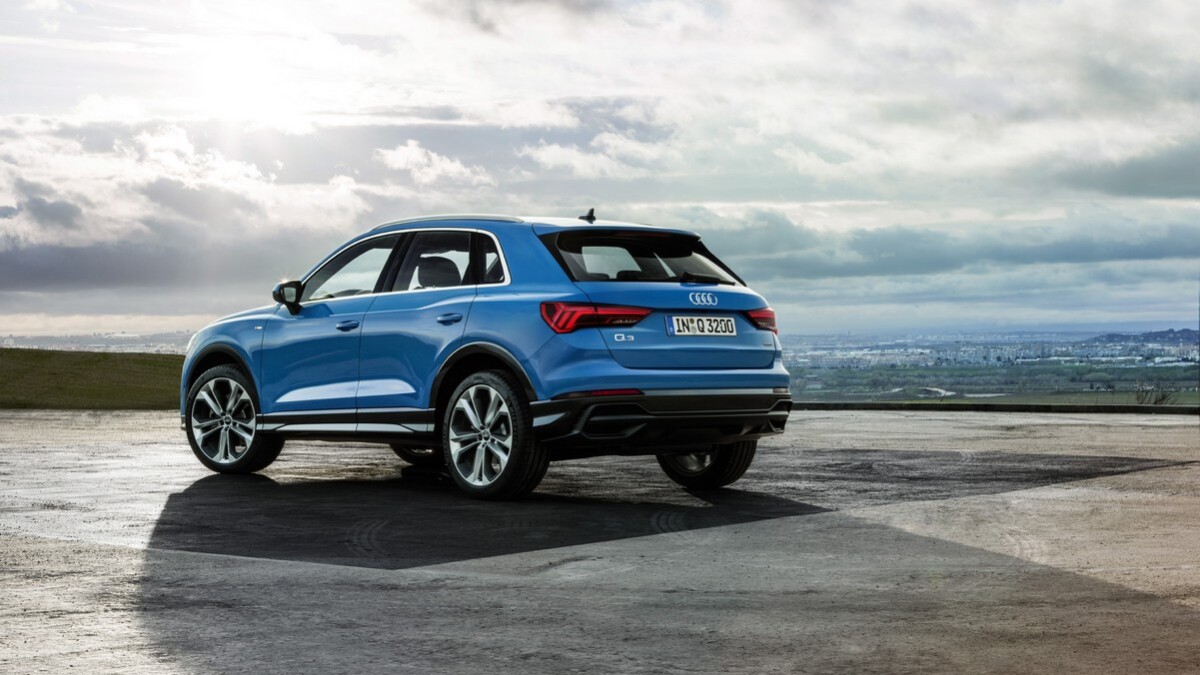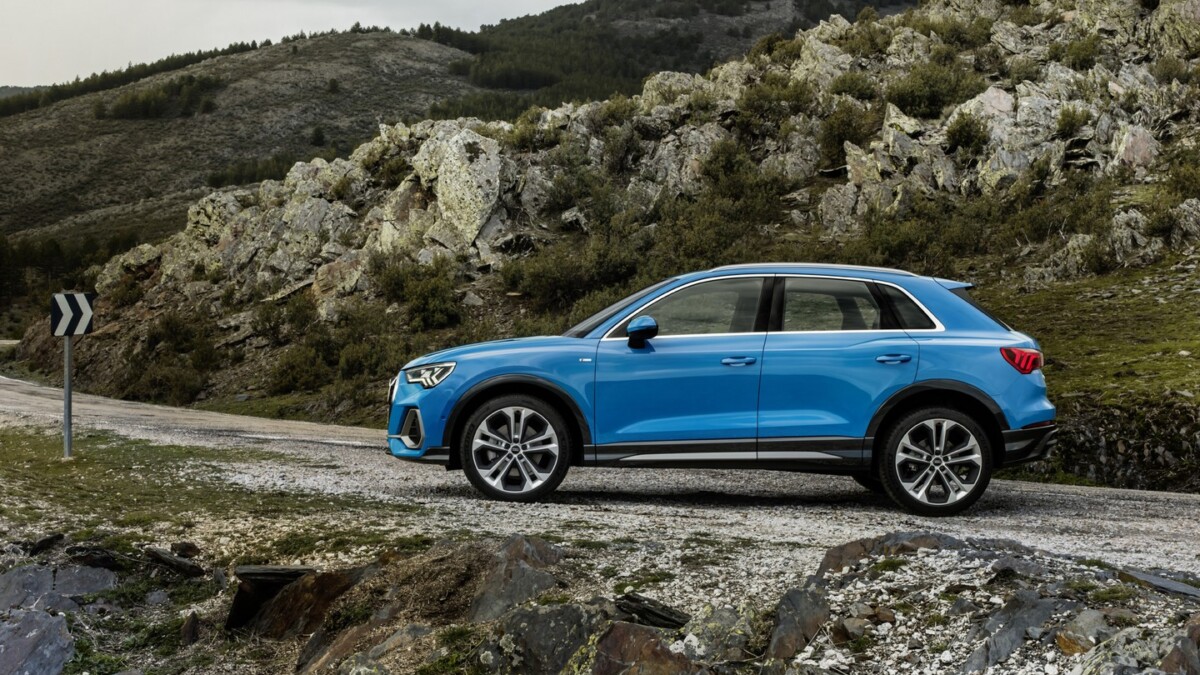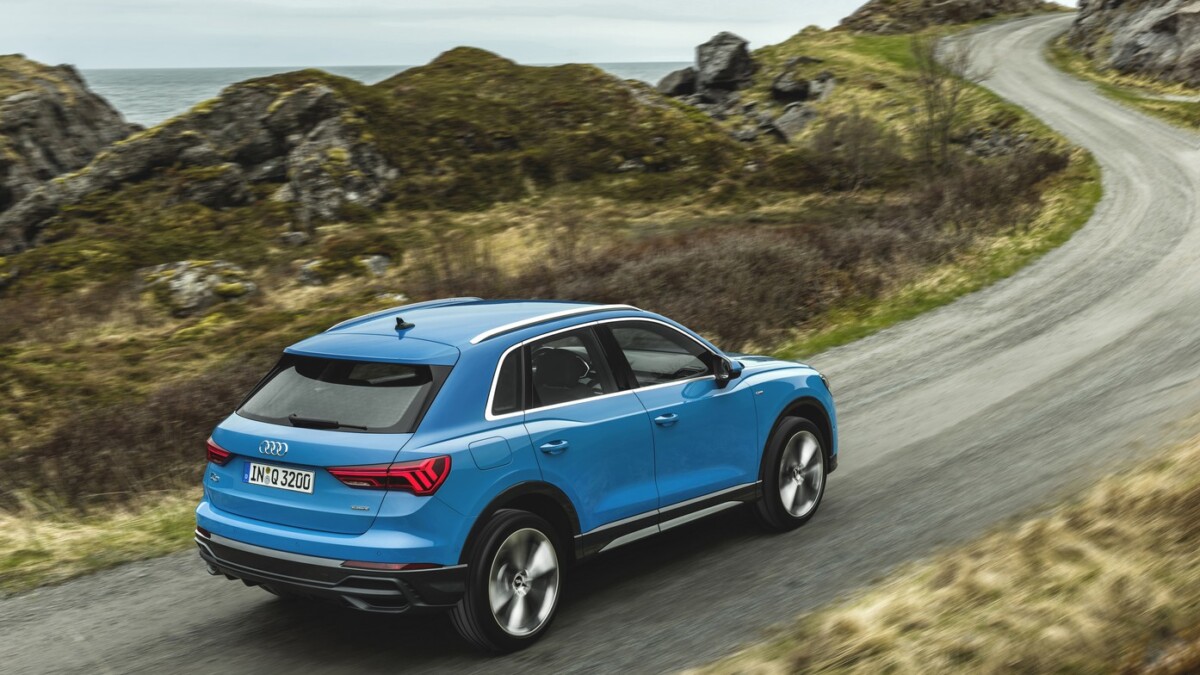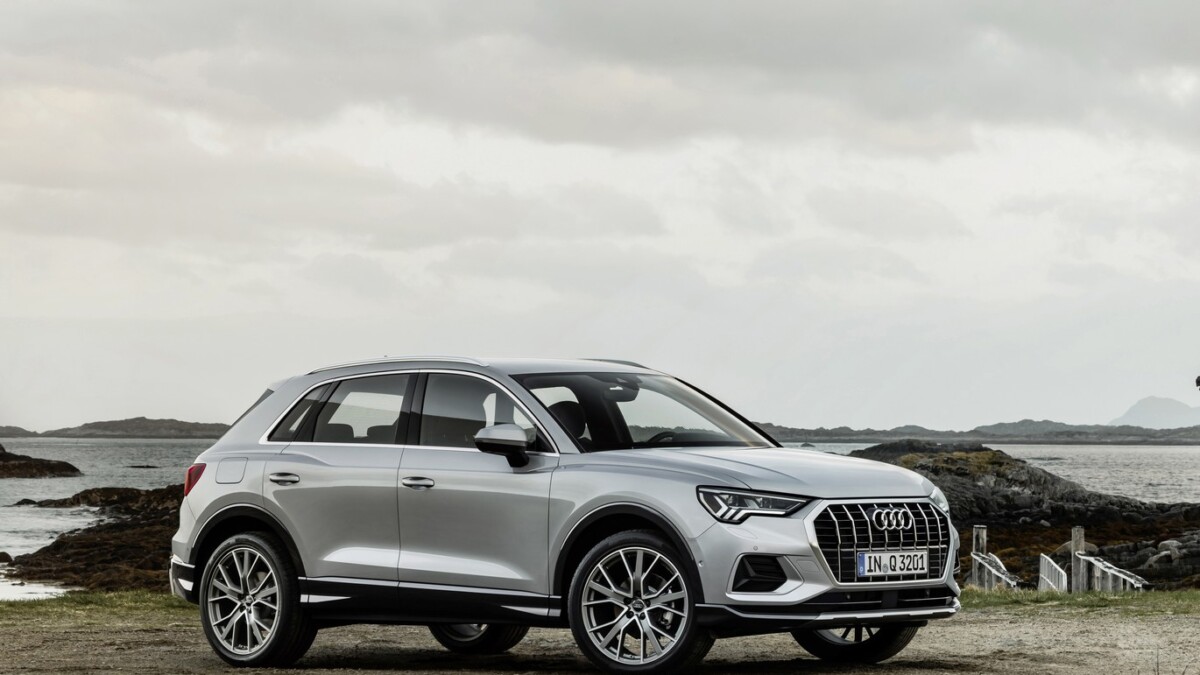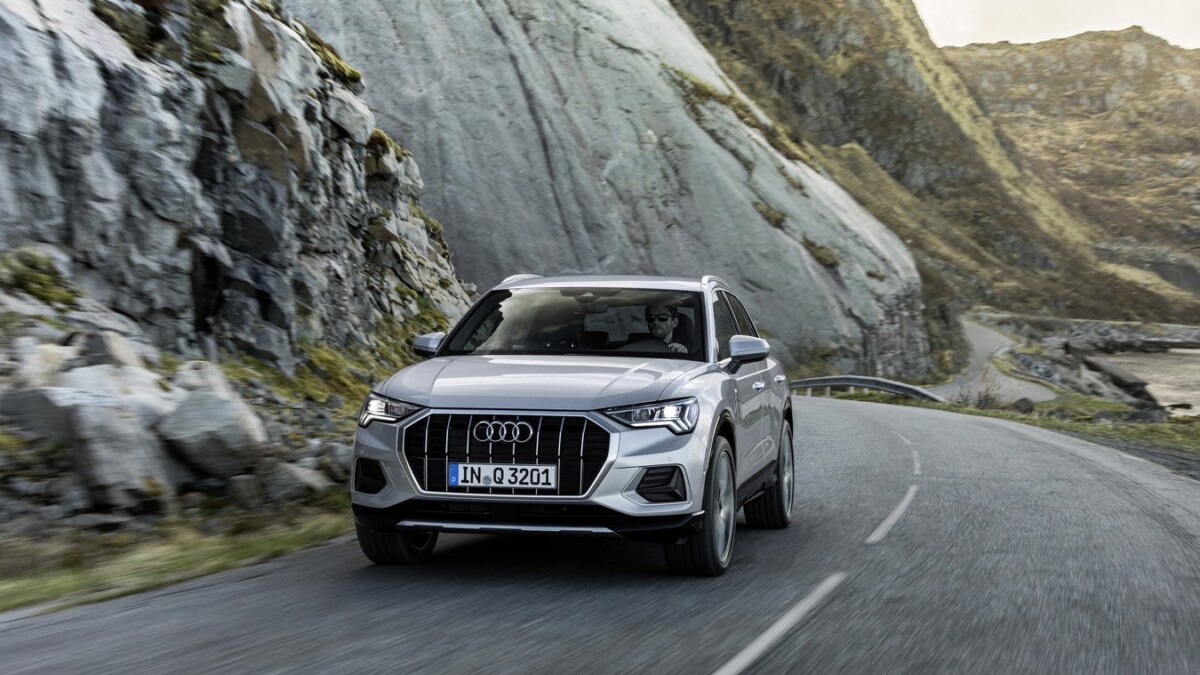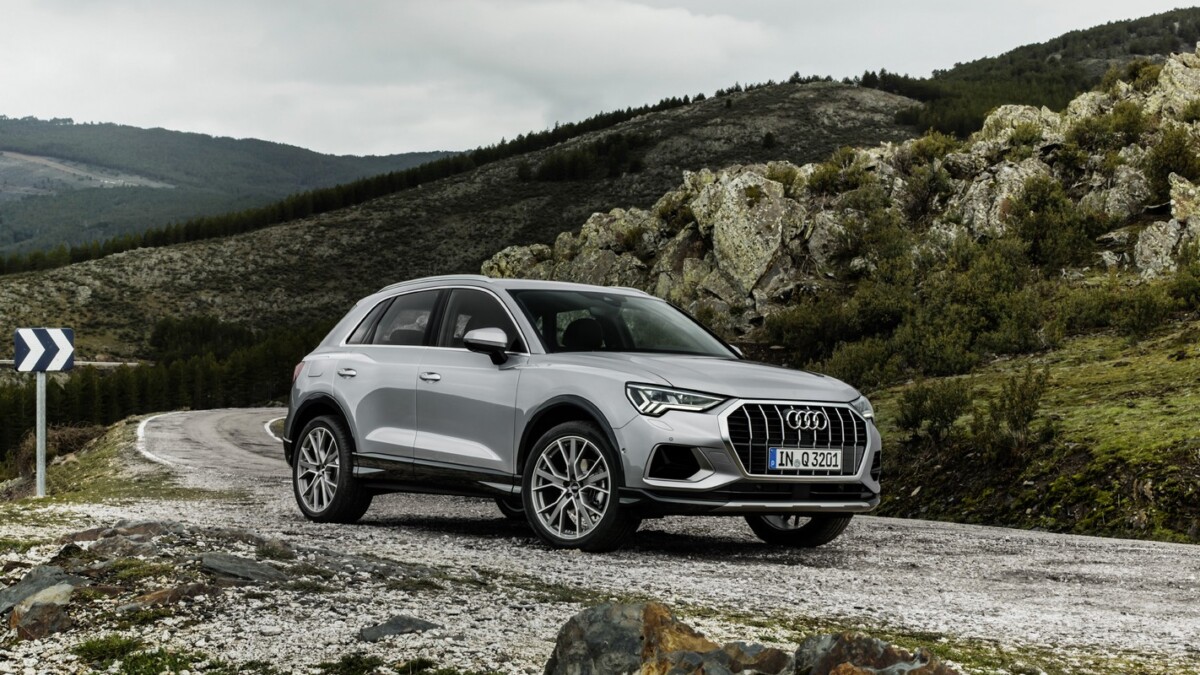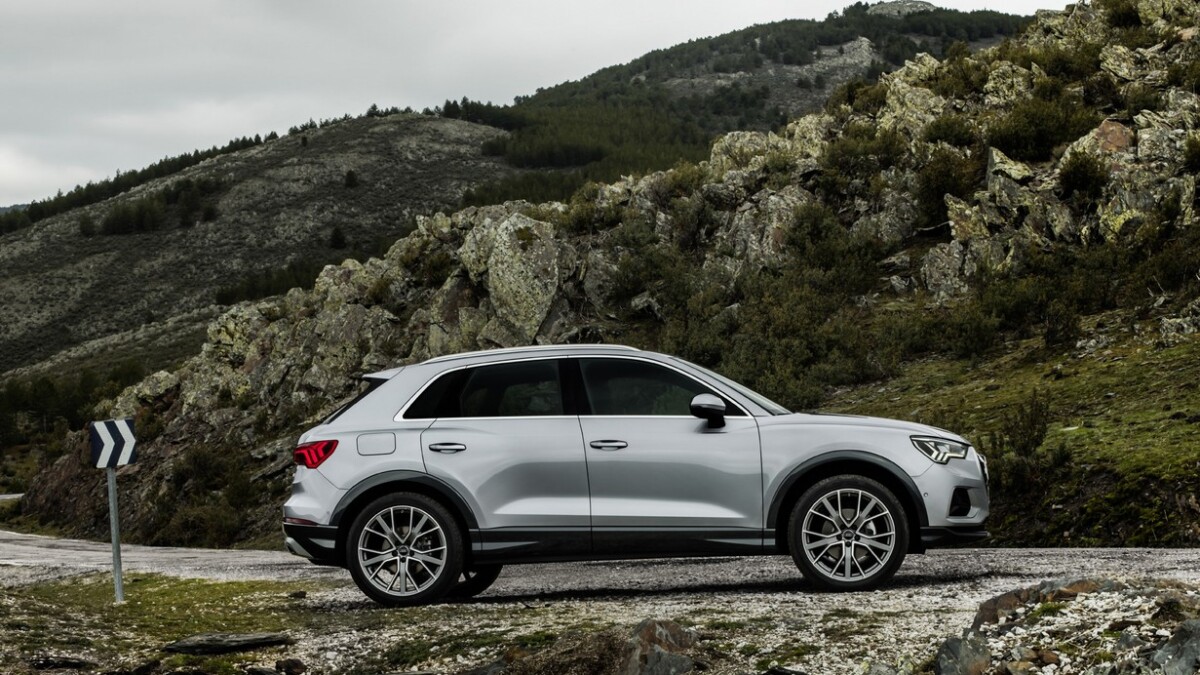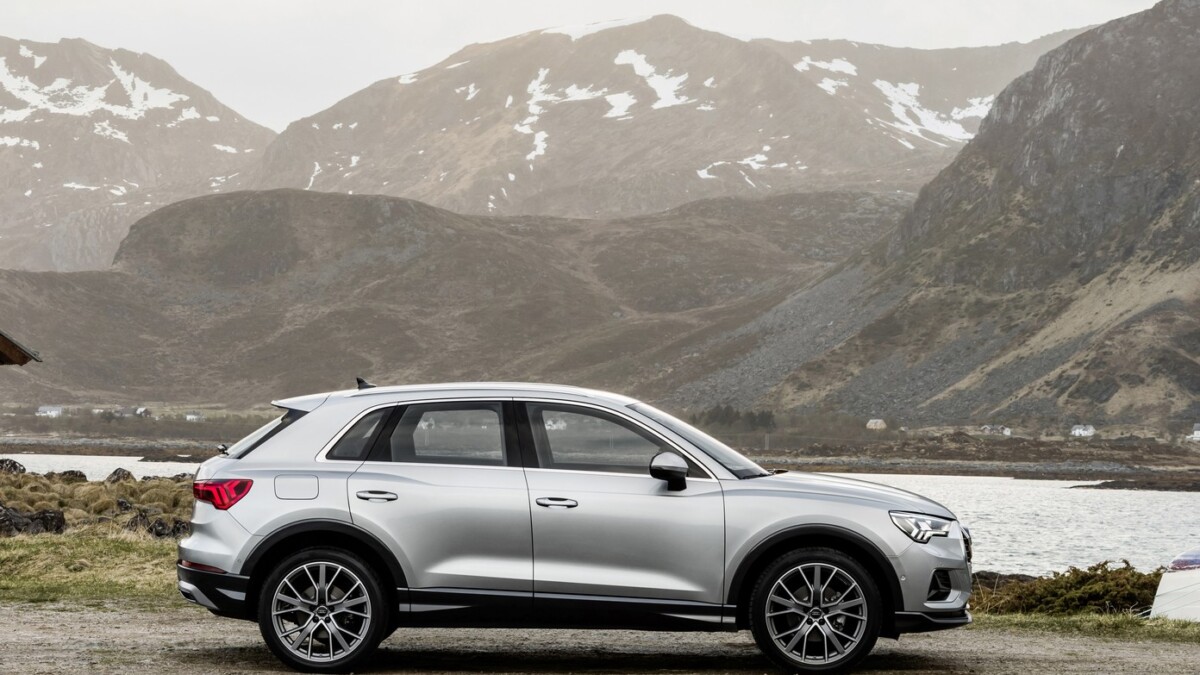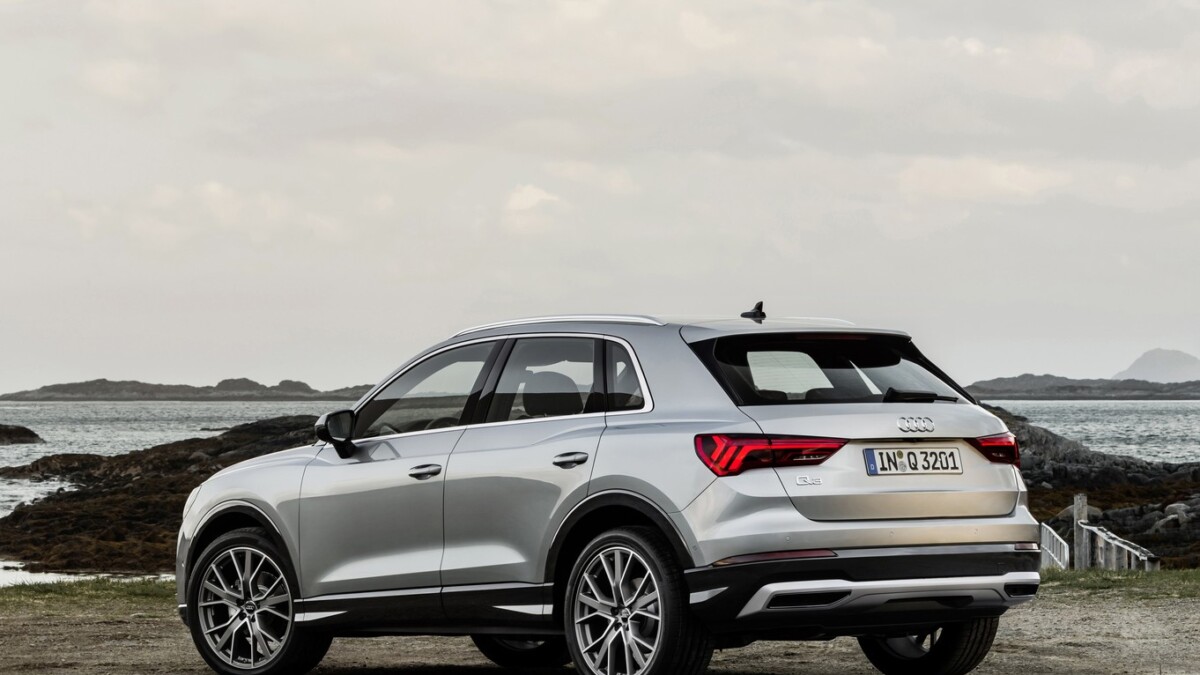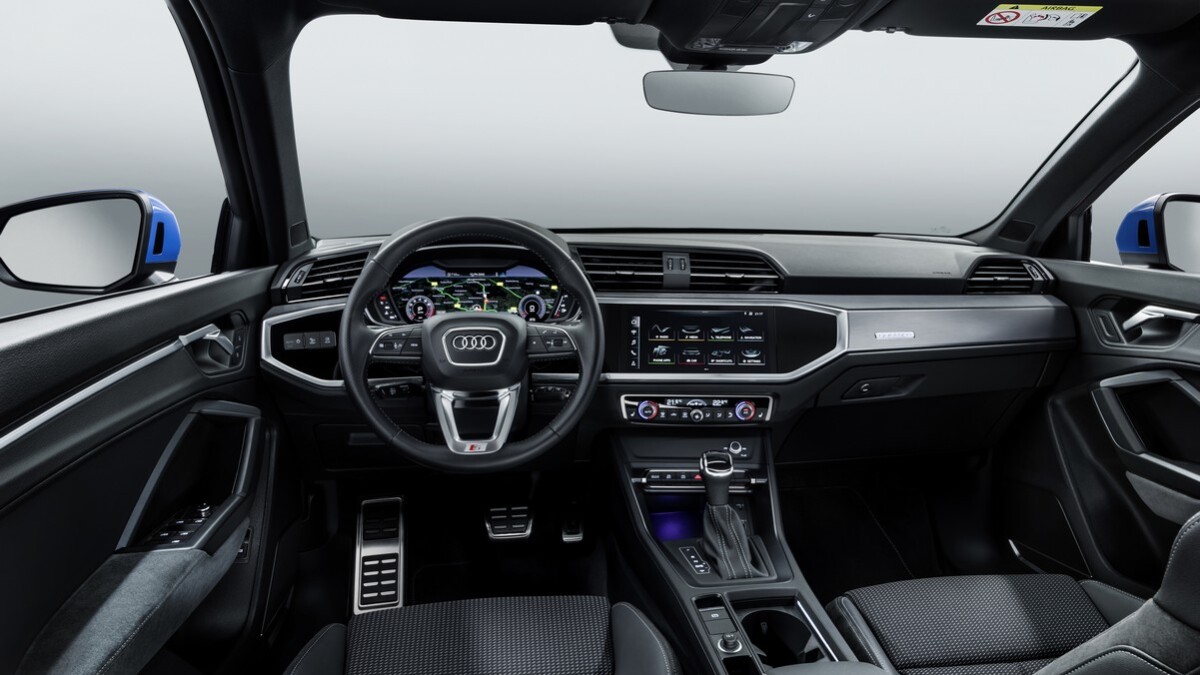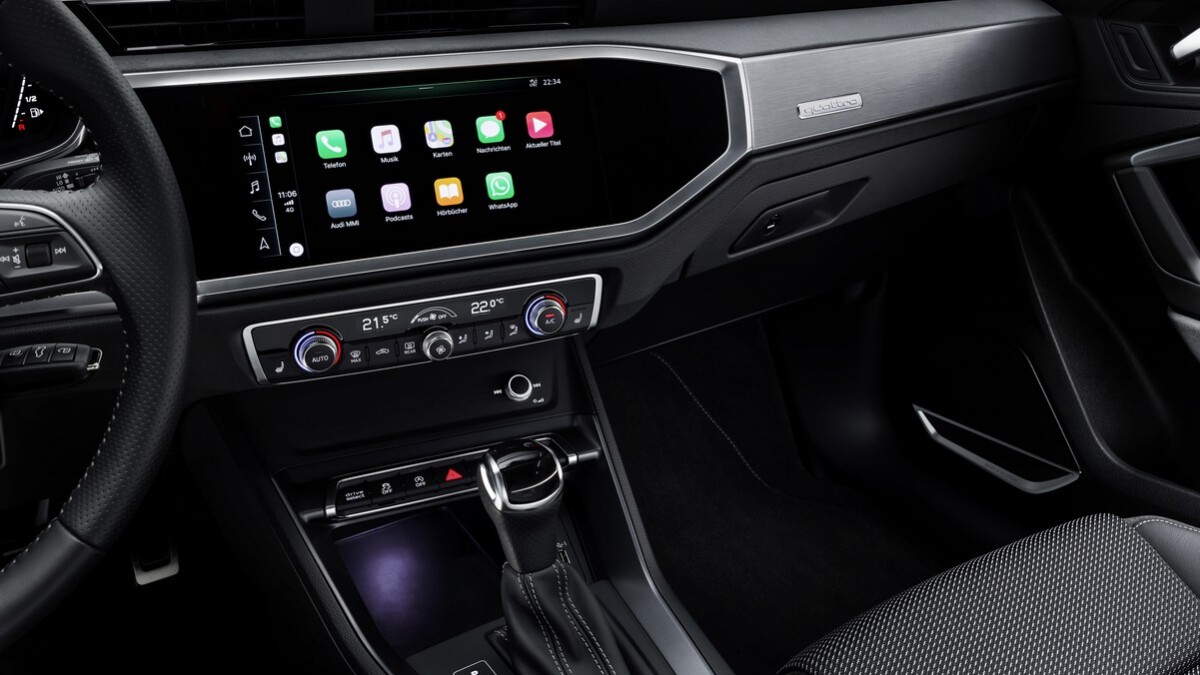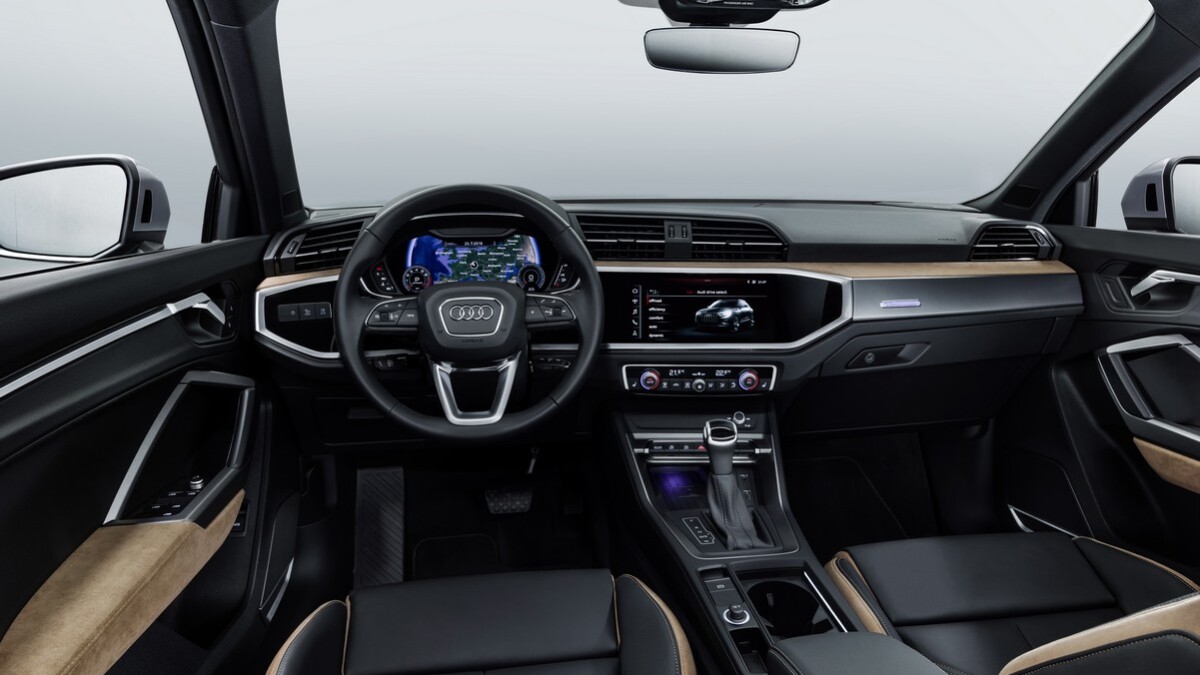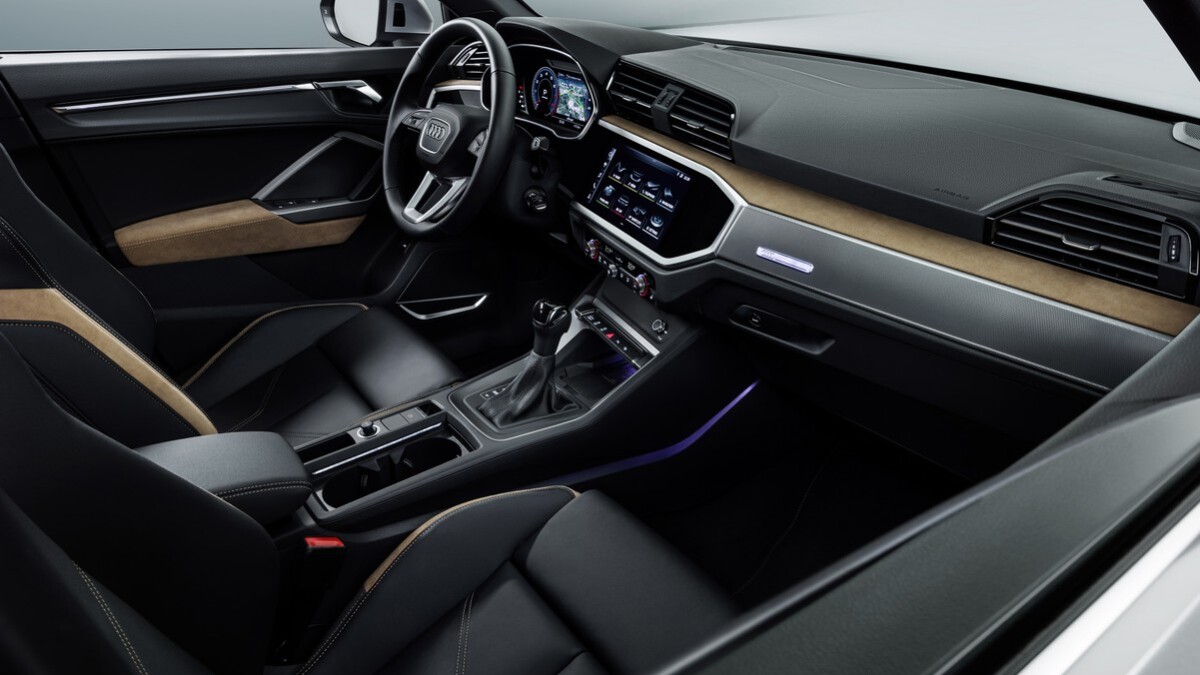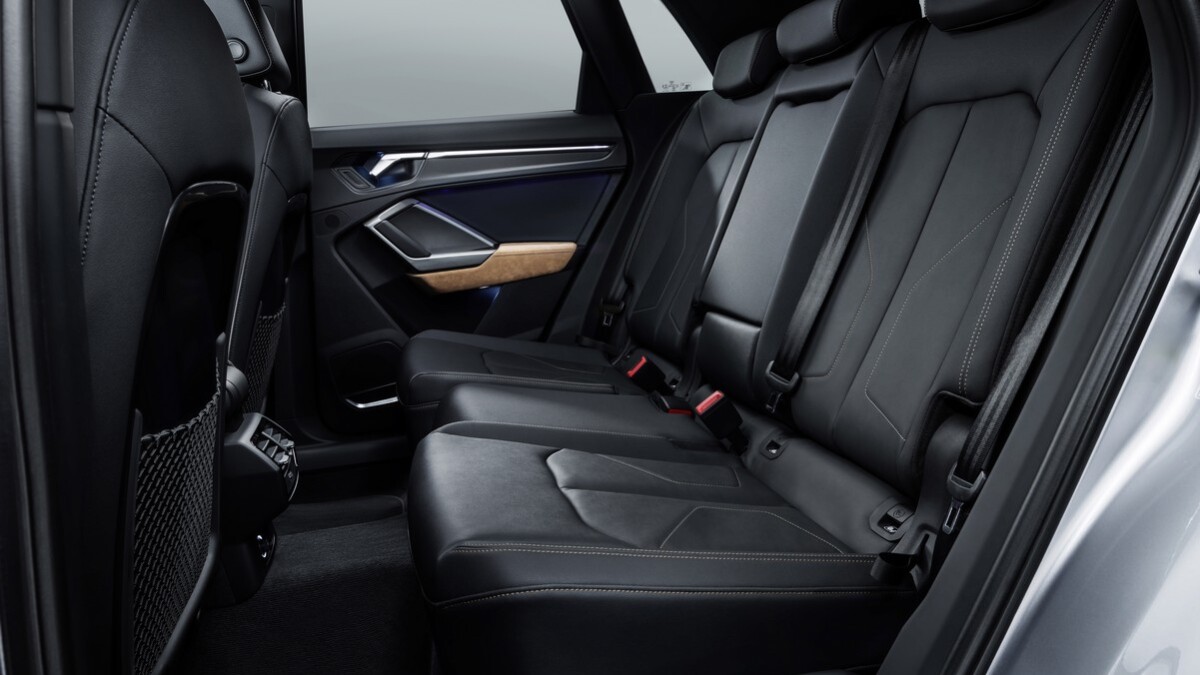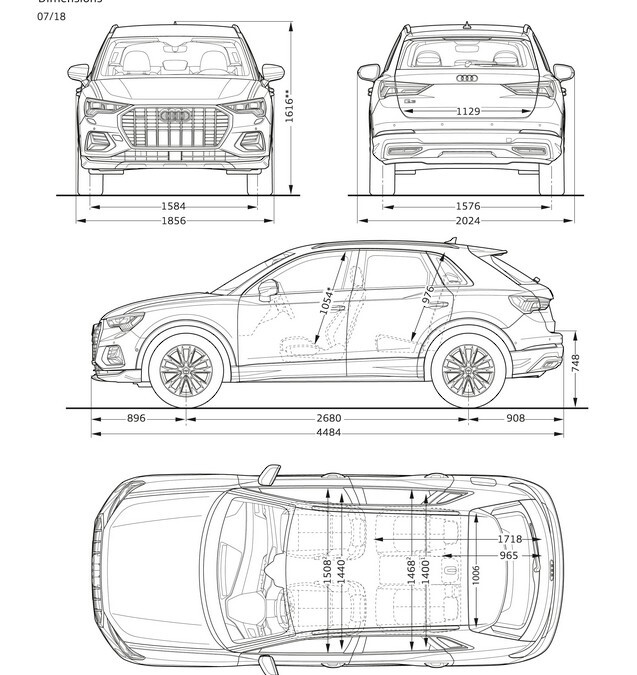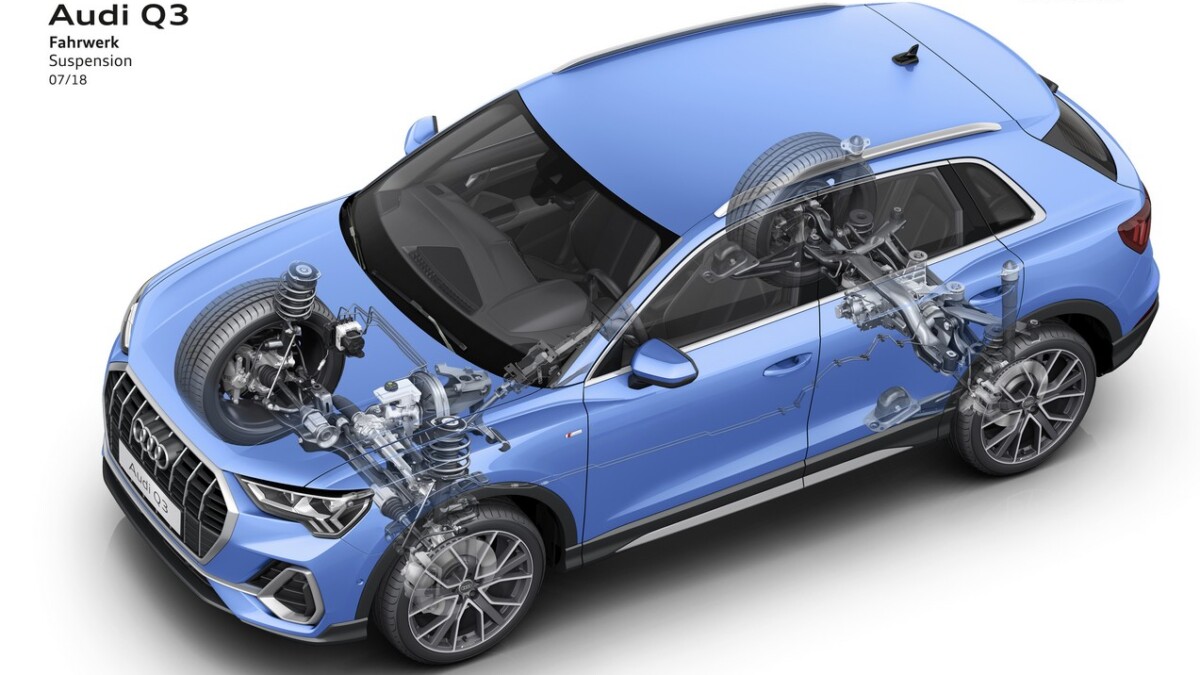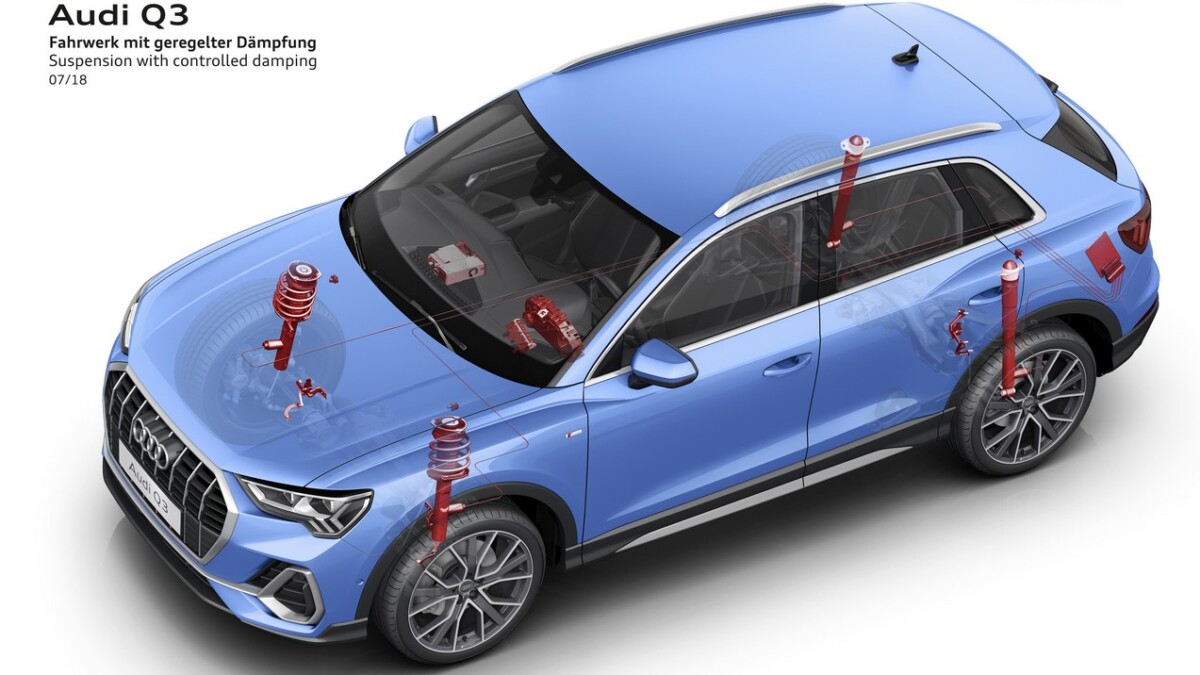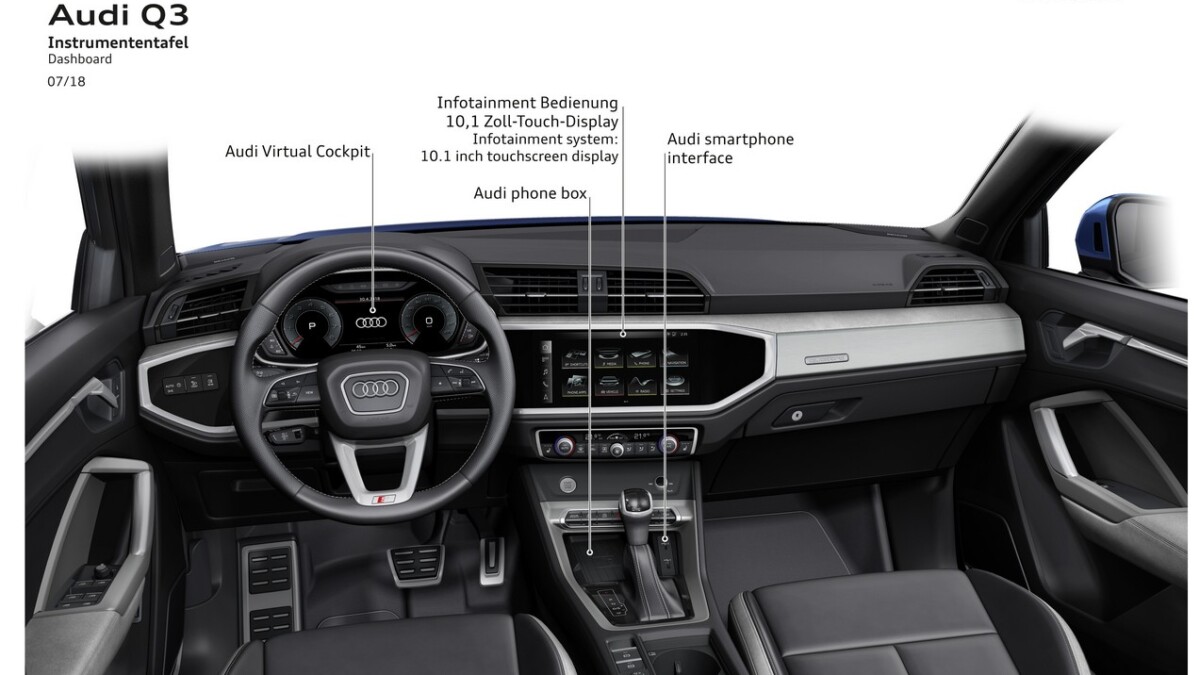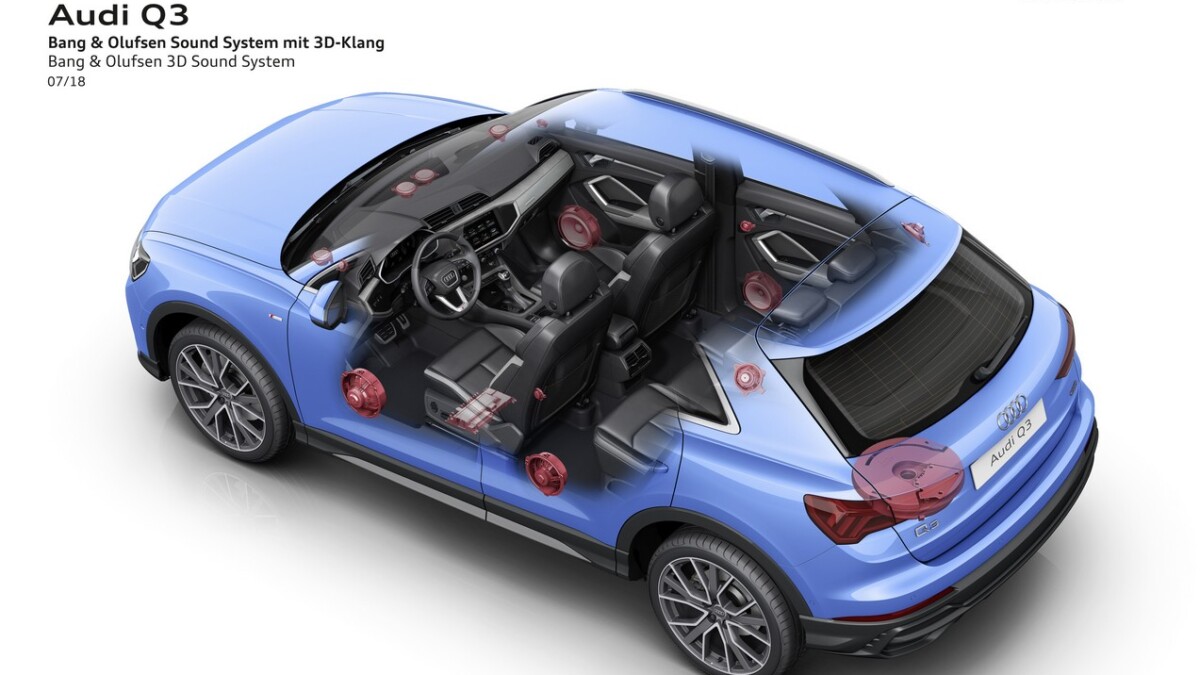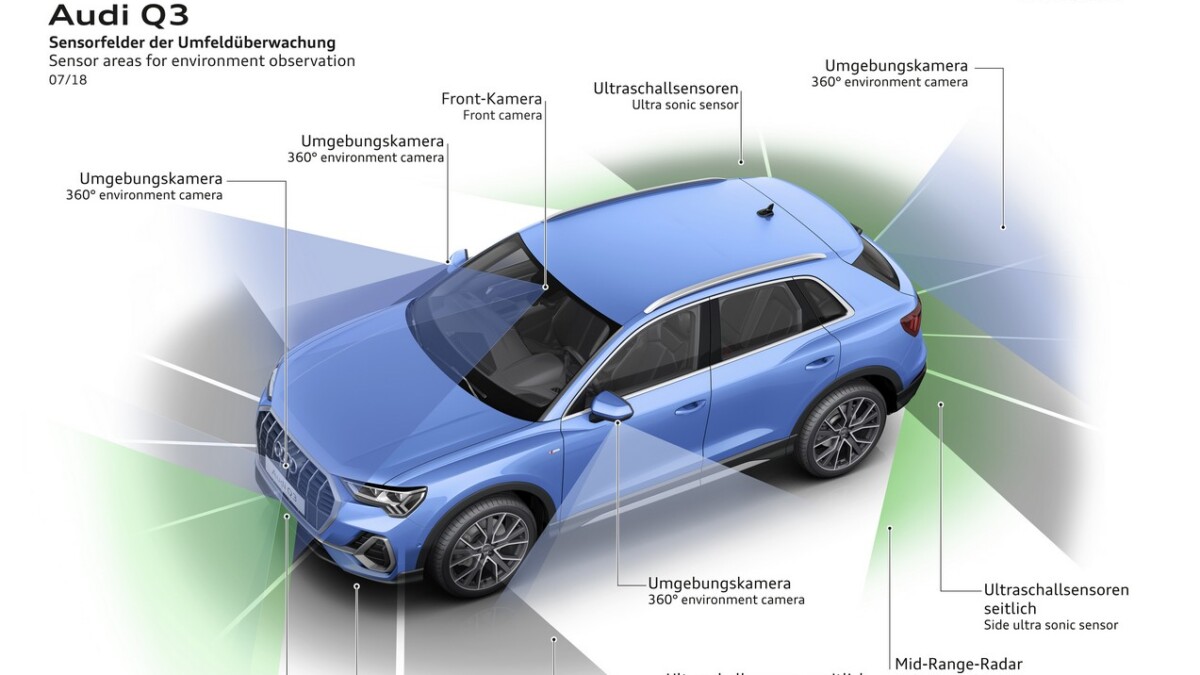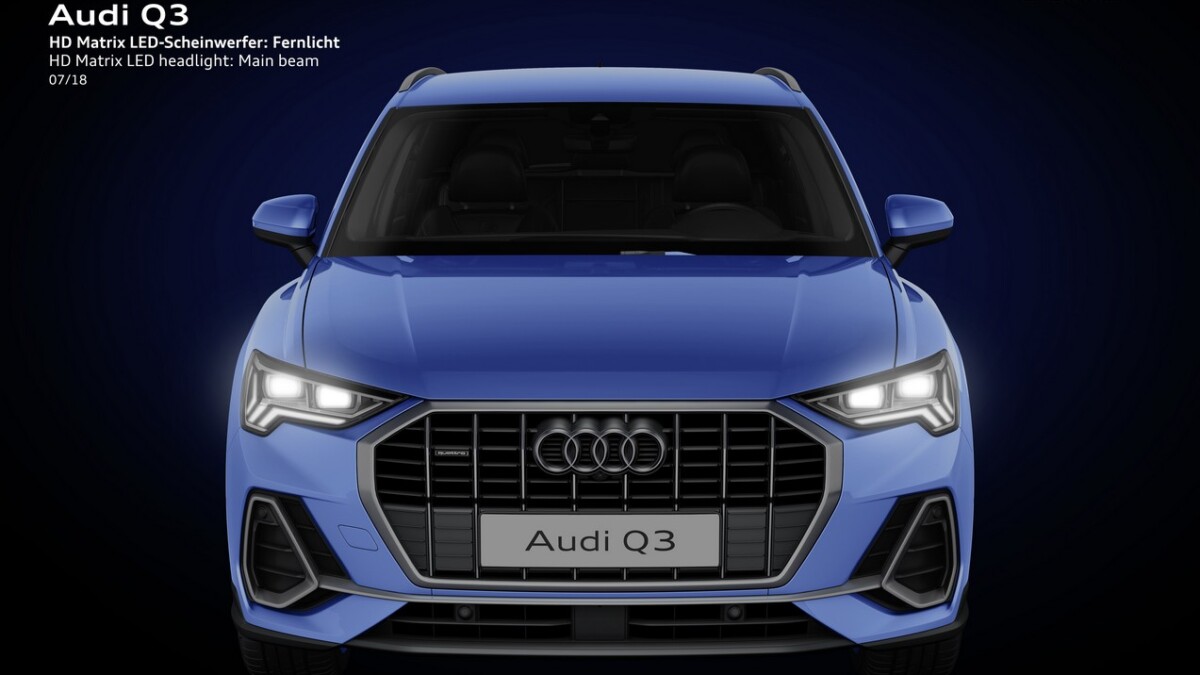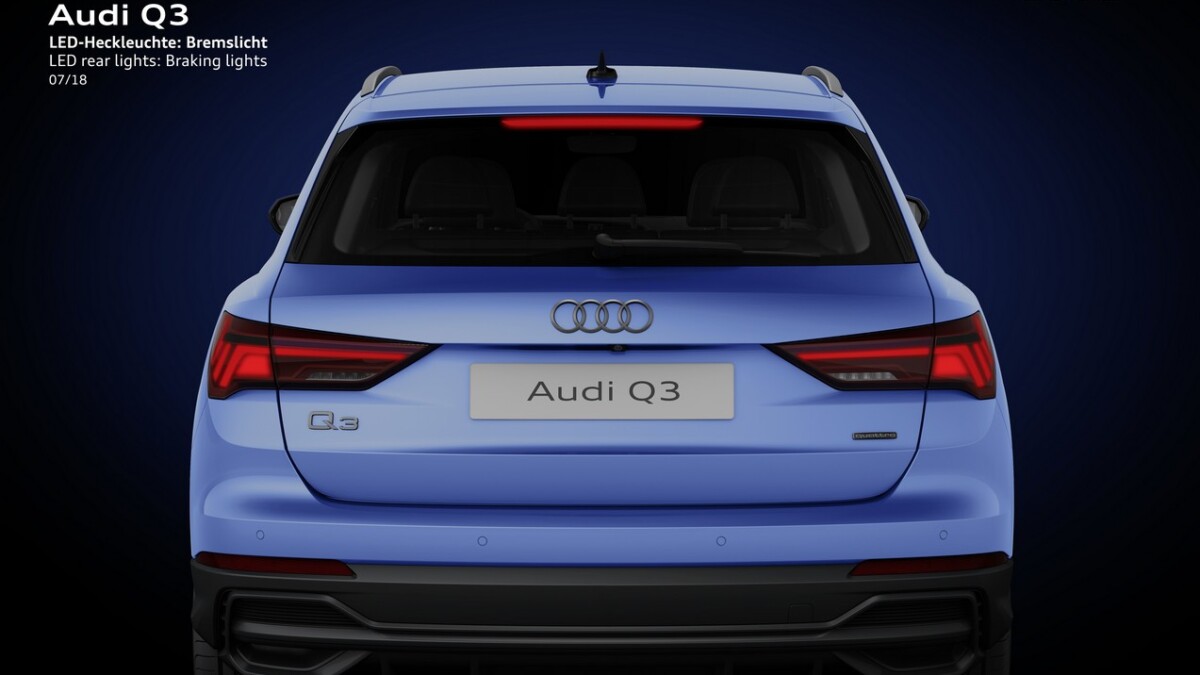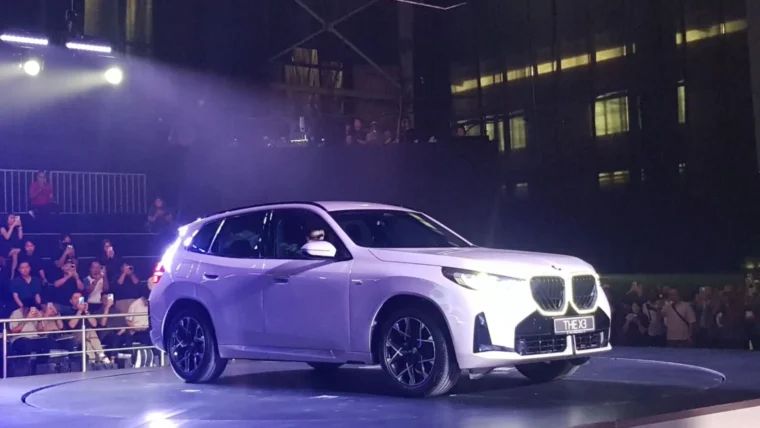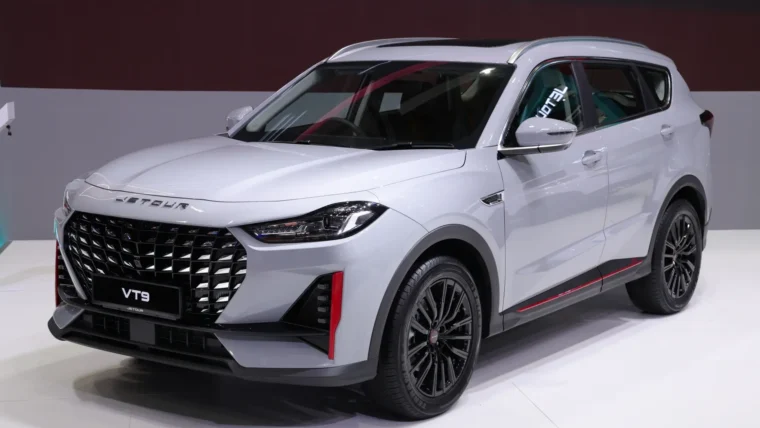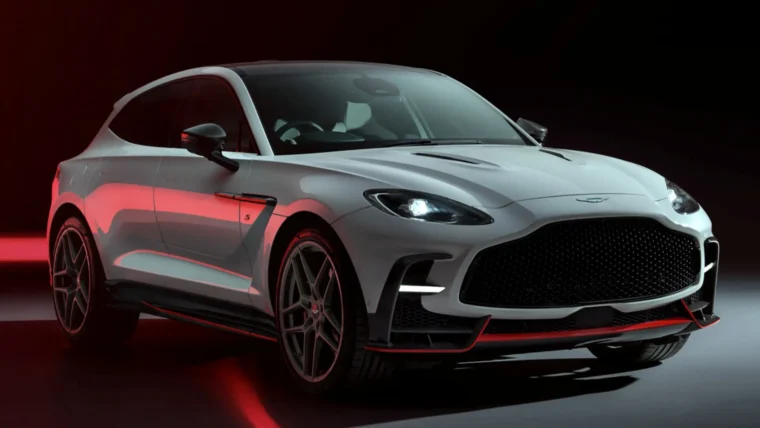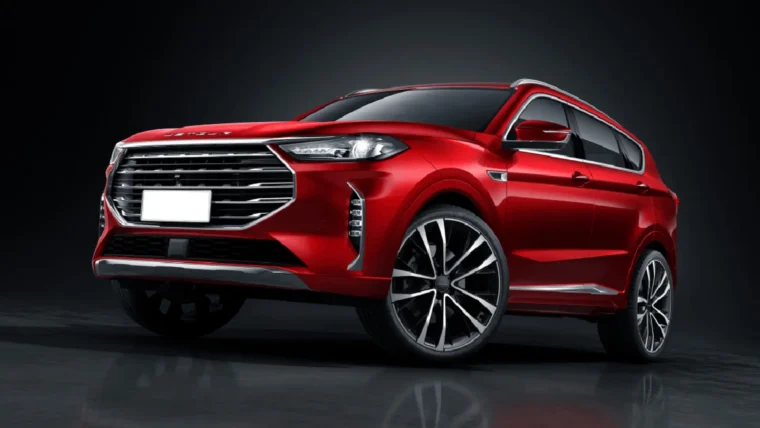The Audi Q3 has always been the in-between model, in terms of size it is neither here nor there when it comes to being a family SUV. Families with two kids will tend to feel a little tight in there especially when there are two baby chairs. So what makes the new Audi Q3 so appealing? To me, it is all about how it looks, and it looks fantastic.
The new Audi Q3 looks much sportier than its predecessor. The Singleframe in octagon design and large side air inlets characterize the masculine front-end. Eight vertical bars divide up the radiator grille with its striking frame and reflect the SUV character. The headlights are narrow and run inwards with their wedge shape. Audi supplies them in three versions, all with LED technology. The top-of-the-line version are the Matrix LED headlights whose adaptive high beam intelligently illuminates the road.
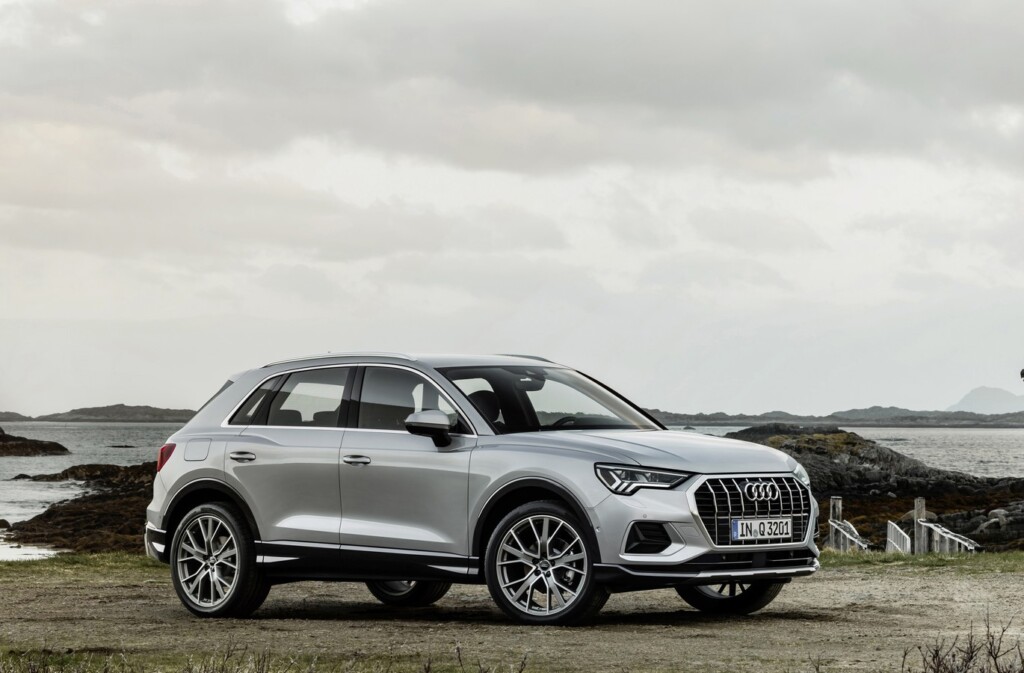
A highlight in the side view is the symmetrical lighting graphics of the headlights and rear lights. The shoulder line connects them from a styling perspective and provides an athletic overall impression with strong muscles over the wheel arches. The contours draw their inspiration from Audi’s quattro DNA and make the SUV seem even wider; the color-contrasting wheel arch trims emphasize the offroad look. Supported by a long roof edge spoiler, which also flanks the rear window at the side, the steeply raked D pillars of the body line also create an appearance of forward thrust.
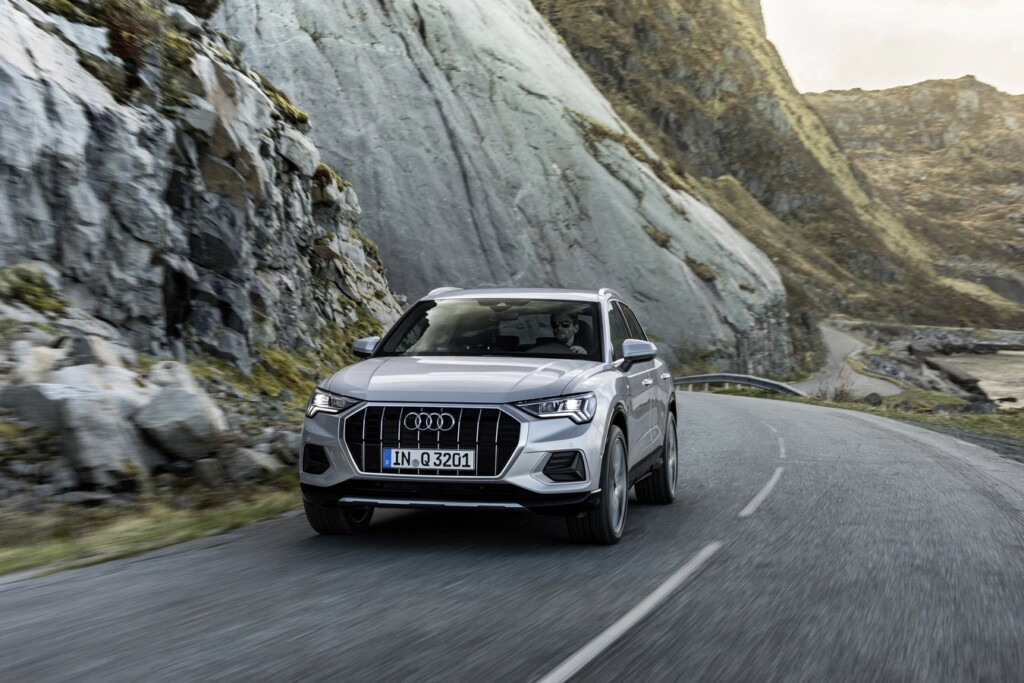
Customers for the new Q3 have many options for customizing their car. These include a contrasting paint finish for the attachments in the lower body section, which accentuates the SUV look even more. With the S line exterior package, the bumpers, sill trims and diffuser look decidedly sporty. Eleven paint colors are available. The interior offers a choice of three equipment lines, which can be combined freely with three exterior packages.
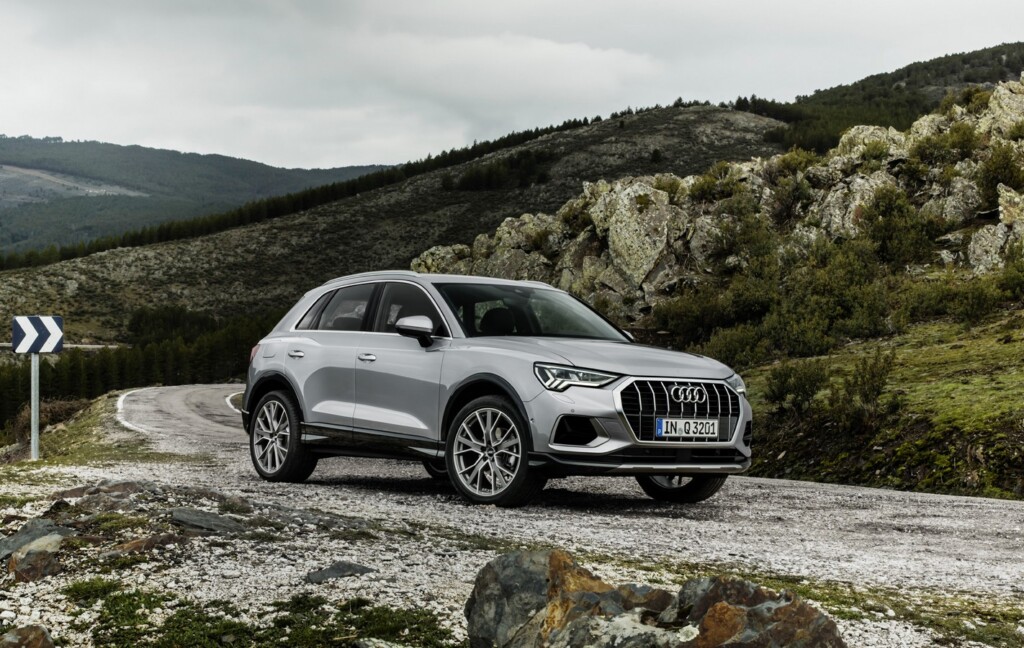
Sporty character, taut lines, three-dimensionally styled elements – the interior continues the design of the exterior and echoes in many ways the brand’s full-size models. The instrument panel is divided into two levels: the top part includes the air vents; the bottom section incorporates the large octagonal area with its black-panel look. The instrument panel varies the motif of the Singleframe and is surrounded by a wide chrome strip. The high-gloss black trim surrounds the central element of the new operating concept: the MMI touch display. Together with the air conditioning controls underneath, it is tilted 10 degrees toward the driver. The pushbutton module for the lighting functions, which replaces the rotary control on the predecessor model, is slotted into the panel to the left of the steering wheel. All displays, buttons and controls are located ergonomically.
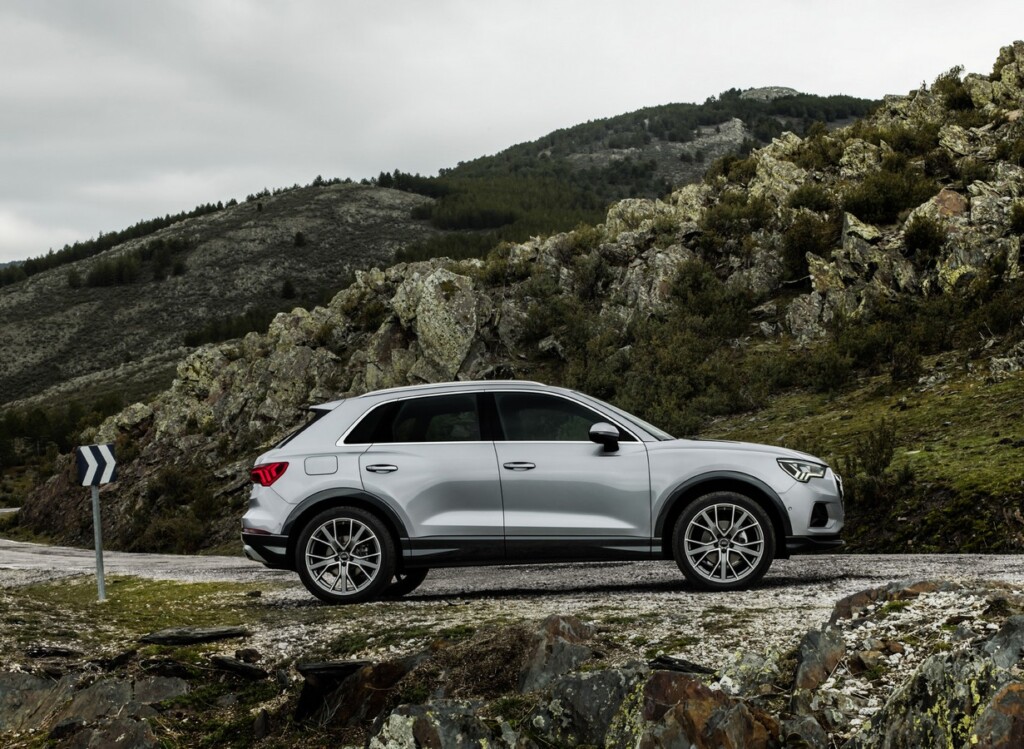
Audi has also developed a new concept for the colors and materials. Q3 customers can choose between three variants – the basic version, the Audi design selection and the S line interior package. Both packages include the sport seats, which are trimmed optionally with a combination of leather/artificial leather and Alcantara. The Alcantara surfaces on the instrument panel and on the door armrests are an entirely new option. They are available in three colors, including a bold orange.
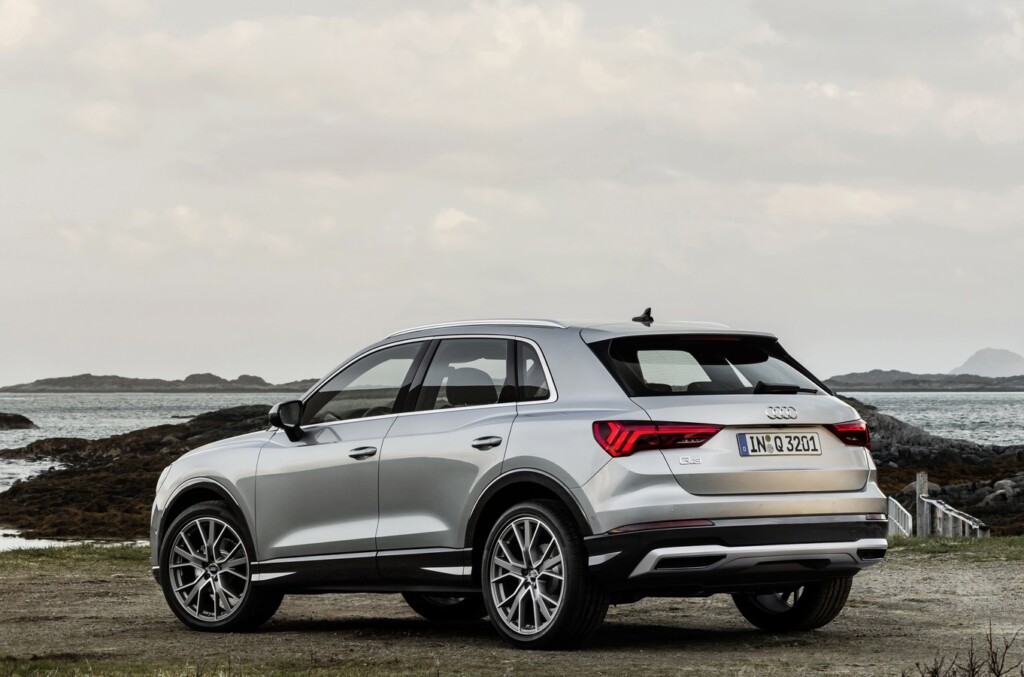
In the dark, the contour/ambient lighting package – standard with the Audi design selection – sets pinpoint lighting accents on the center console and on the doors. It can be set to 30 colors and also illuminates the storage compartment under the instrument panel as well as the quattro logo above the glove compartment, or the Audi rings on front-wheel-drive models. Other top extras include the two-zone air conditioning, the auxiliary heating, the heated steering wheel and the panoramic glass sunroof.
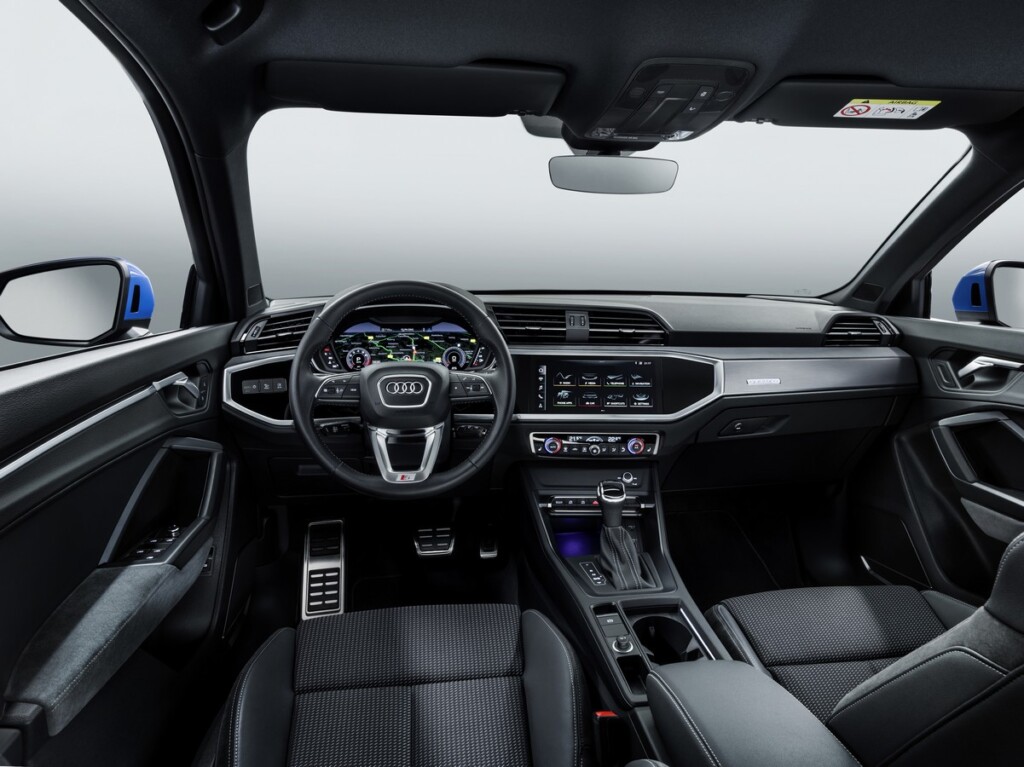
The new Audi Q3, which is based on the Volkswagen Group’s modular transverse matrix, has grown in virtually all dimensions and is positioned in the upper compact SUV segment. It is 4,485 millimeters (14.7 ft) long, making it 97 millimeters (3.8 in) longer than its predecessor. In terms of width, it has grown 25 millimeters (1.0 in) to 1,856 millimeters (6.1 ft), but at 1,585 millimeters (5.2 ft) is 5 millimeters (0.2 in) flatter than the first-generation Q3. Its wheelbase, which has been stretched 77 millimeters (3.0 in) to 2,680 millimeters (8.8 ft) is much more spacious – knee room, headroom and elbow room are even larger.
In typical SUV fashion, the Audi Q3 is easy to get into, with good all-round visibility, and yet offers a sporty seating position. The steering wheel is steeply angled accordingly. The seats – electrically adjustable as an option – offer the same comfort as in the next larger vehicle category.
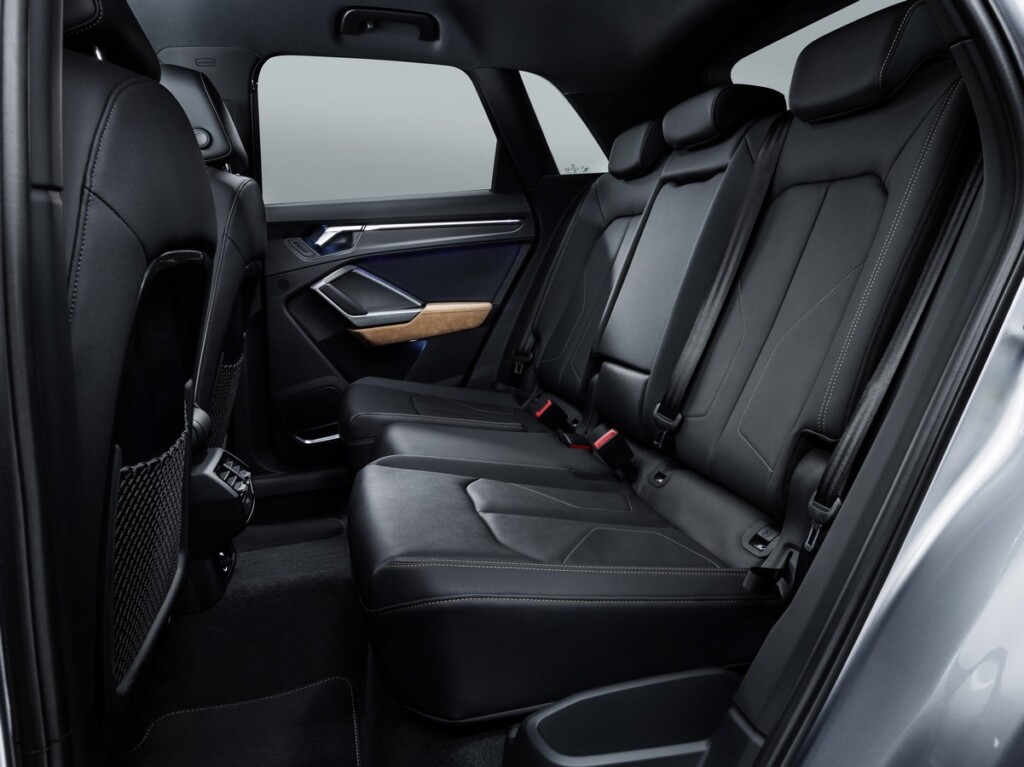
One highlight is the standard-fit highly variable division of space: the rear seats can be moved fore/aft by 150 millimeters (5.9 in). Their three-way split backrests in the ratio 40:20:40 can be tilted in seven stages. Rear passengers also have the option of a center armrest that features two cup holders as standard.
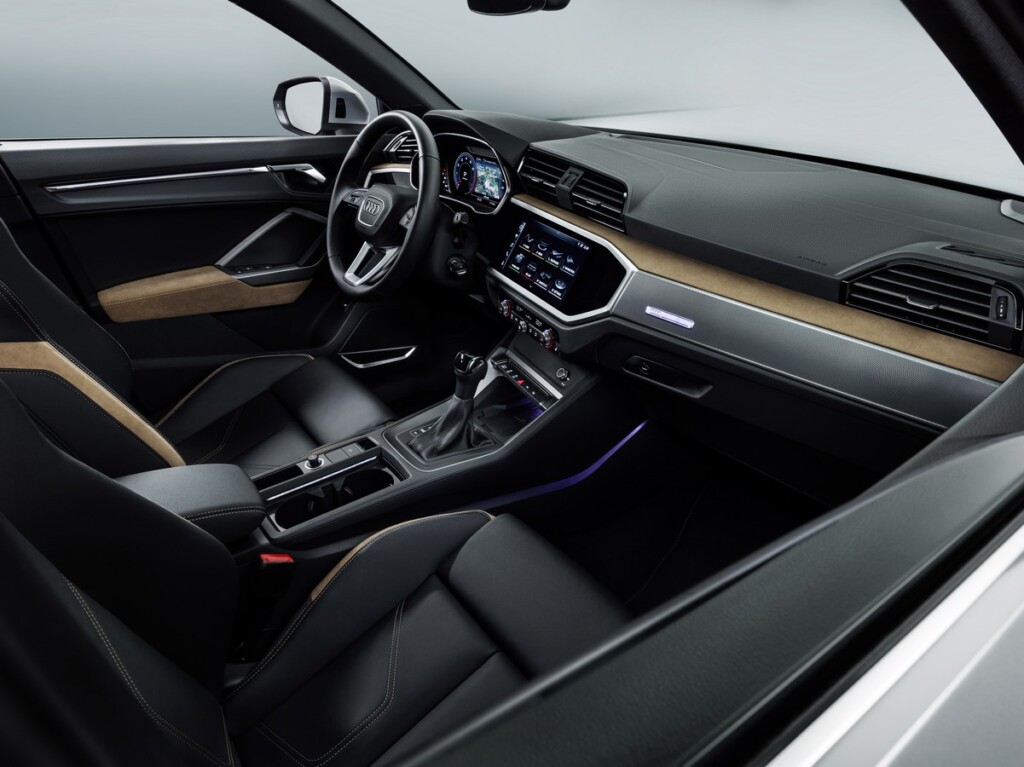
Depending on the position of the rear seats and backrests, the luggage compartment capacity totals 530 or 675 liters (18.7/23.8 cu ft). With the backrests folded down the figure rises to 1,525 liters (53.9 cu ft). The loading floor can be adjusted in three levels; the low loading sill of 748 millimeters (29.4 in) makes it easier to stow heavy luggage. If the parcel shelf is not needed, it can be stowed under the loading floor. For extra comfort on long journeys, Audi offers the storage and luggage compartment package as an option. Besides nets on the backs of the front seats and a storage compartment under the front passenger seat, it includes a luggage compartment net as well as LED spotlights in the tailgate to provide illumination whatever the vehicle is carrying. The electric tailgate provides effortless access to the luggage compartment. In conjunction with the convenience key, it can also be opened and closed with a kicking motion.
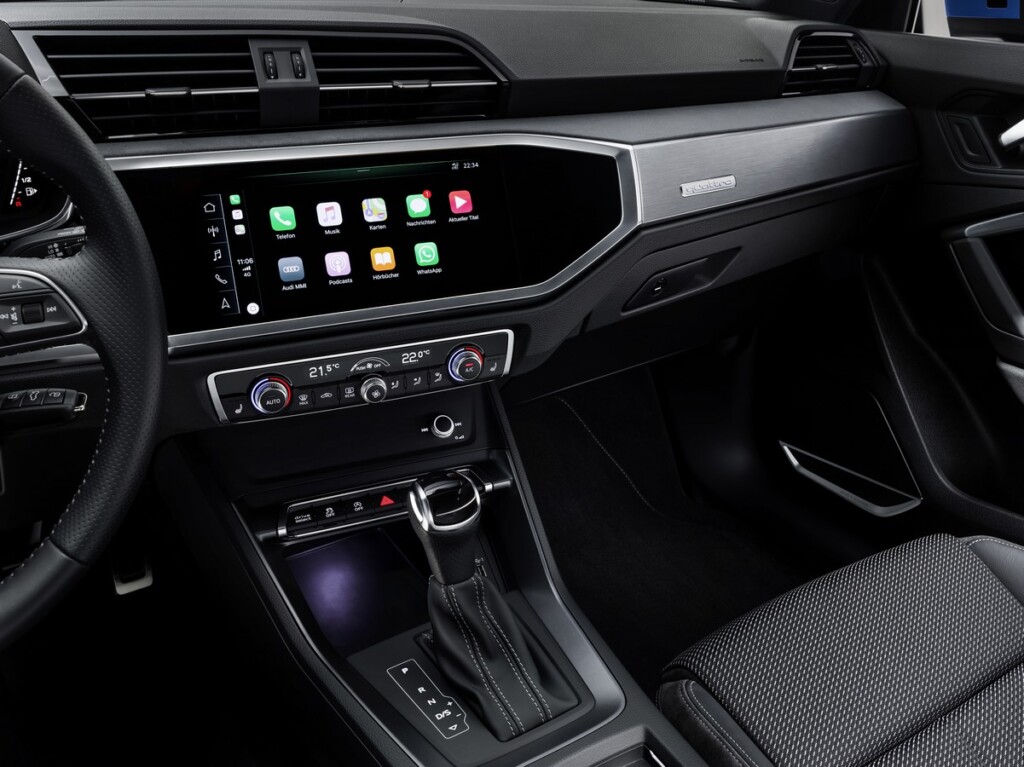
The operating and display concept of the family SUV has been overhauled from the ground up – Audi has done away with the analog instruments. Even with the standard MMI radio there is a digital instrument cluster with a 10.25 inch screen diagonal, which the driver operates using the multifunction steering wheel. With MMI radio plus, the first option level, customers can upgrade the instrument cluster as an option to the Audi virtual cockpit with additional functions. It incorporates, for instance, the MMI functions and, in addition to road and engine speed, also displays information on music tracks and Audi connect services. If the customer has specified navigation, the display also includes the navigation map. The driver can configure the display according to their needs and has all the data in their direct field of view. The MMI radio plus also includes an MMI touch display with 8.8 inch screen diagonal in the center of the instrument panel. With the top-of-the-line equipment MMI navigation plus this touchscreen measures 10.1 inches. The displays appear in the 10.25 inch Audi virtual cockpit, which the customer can upgrade as an option to the version with a 12.3 inch screen diagonal. The driver can call up three different views on the screen, including a new extra sporty display.
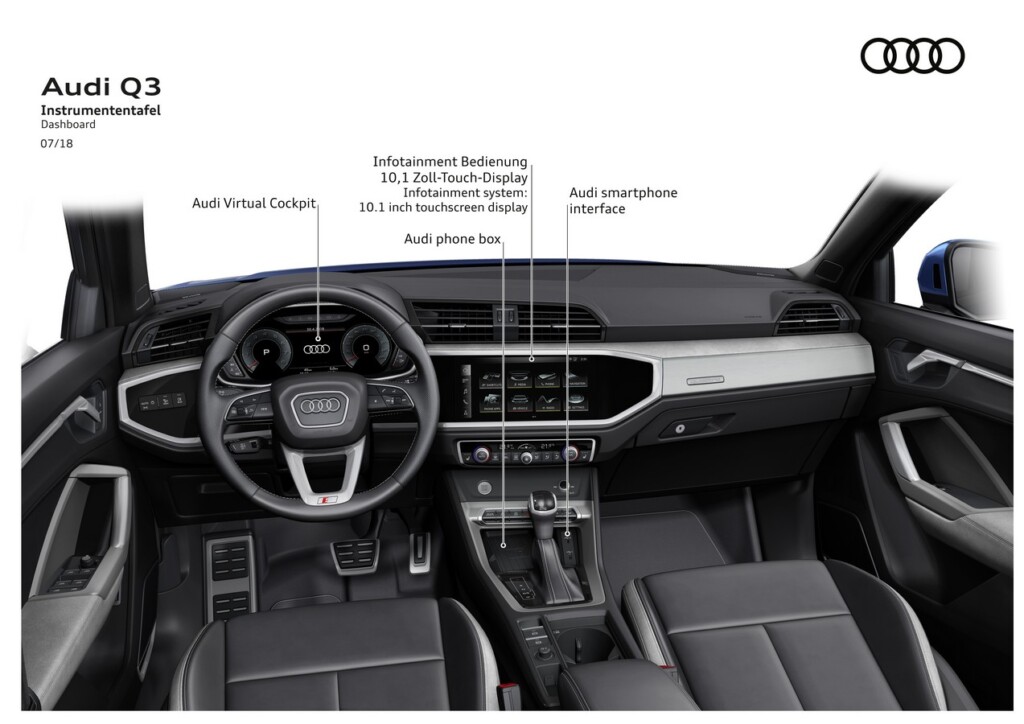
In addition, the Audi Q3 with MMI navigation plus also comes with new natural-language voice control. It also understands freely structured wording. The ingenious dialog manager asks questions if necessary, allows corrections, offers choices and defers to the speaker when interrupted.
The MMI navigation plus in the Audi Q3 offers the same technical functions as in the higher segments – here too the SUV sets a new standard in the compact class. The navigation, for instance, recognizes the driver’s preferences based on previous journeys, allowing it to generate suitable route suggestions. The route is calculated – in parallel to the planning in the car – on the servers of the map and navigation provider HERE, using real-time data for the overall traffic situation.
The Audi connect portfolio – included as standard with the top-of-the-line infotainment system – supplements the navigation in an ideal way. The data transfer module supports the LTE Advanced standard and provides the Audi connect services in virtually all European countries via a SIM card which is permanently installed in the vehicle. These services include traffic information online, the point-of-interest search as well as information on parking spaces and filling stations, which appear directly on the navigation map – where necessary also with dynamic additional information such as prices and availability. The Audi Q3 uses the fleet’s swarm intelligence as part of these functions: Suitably equipped vehicles report moving into and out of parking spaces so that forecasts on the availability of roadside parking space appear in selected towns and cities. The cars from this swarm also warn each other of hazardous spots such as fog or black ice, and report current speed limits. Audi connect also includes media streaming, online news, access to Twitter and to the e-mail inbox. A Wi-Fi hotspot for the passengers’ mobile devices is also fitted onboard. As an option, the customer can add on data packages conveniently from the car.
The optional Audi connect Navigation & Infotainment plus add-on package also features other innovative services, including Google Earth. Using high-resolution satellite images it provides a more lifelike display, making it easier for drivers to find their way around. The same applies to the new, detailed 3D models of many major European cities. The hybrid radio is also included in the specification. Depending on a station’s signal strength it automatically switches between FM, DAB and the online stream to ensure optimum reception at all times. In conjunction with the optional Audi connect Navigation & Infotainment plus package, the natural voice control responds to inquiries not just with information stored onboard, but also with the detailed knowledge from the cloud – the same feature already premiered in the Audi A8. The online cross-referencing improves both the detection rate as well as the results. That way it is easy for the Audi Q3 to find special destinations such as an Italian restaurant, a climbing center or the next shopping mall. The system displays relevant information such as photos, opening times and visitor ratings.
Many Audi connect functions are brought together in the myAudi app. It connects the customer’s smartphone to the new Q3 – allowing, for instance, navigation routes to be imported seamlessly. Once the user gets into their car, route guidance is continued on the onboard monitor. Once the driver gets out of their Q3 at the end of the journey, the smartphone navigates them onto their next destination.
The app also supports music streaming and transfers the smartphone calendar onto the MMI. Furthermore, the user can remotely lock and unlock their car, consult the current vehicle status, pinpoint where their Audi Q3 is parked or operate the optional auxiliary heating using the myAudi app on their smartphone.
A range of hardware modules supplements the infotainment portfolio. The Audi phone box links the owner’s smartphone to the vehicle’s antenna and charges the phone inductively. To play music from the MP3 player, USB stick or smartphone via the loudspeakers in the car, the Audi Q3 offers two USB ports – one of which is the latest new type C. This innovation supports faster transfer rates and makes it easy to connect thanks to a symmetrical plug. In addition, there are two USB sockets and a 12V socket for the rear. The Audi smartphone interface links customers’ iOS and Android cell phones and places their Apple Car Play or Android Auto environment on the MMI display.
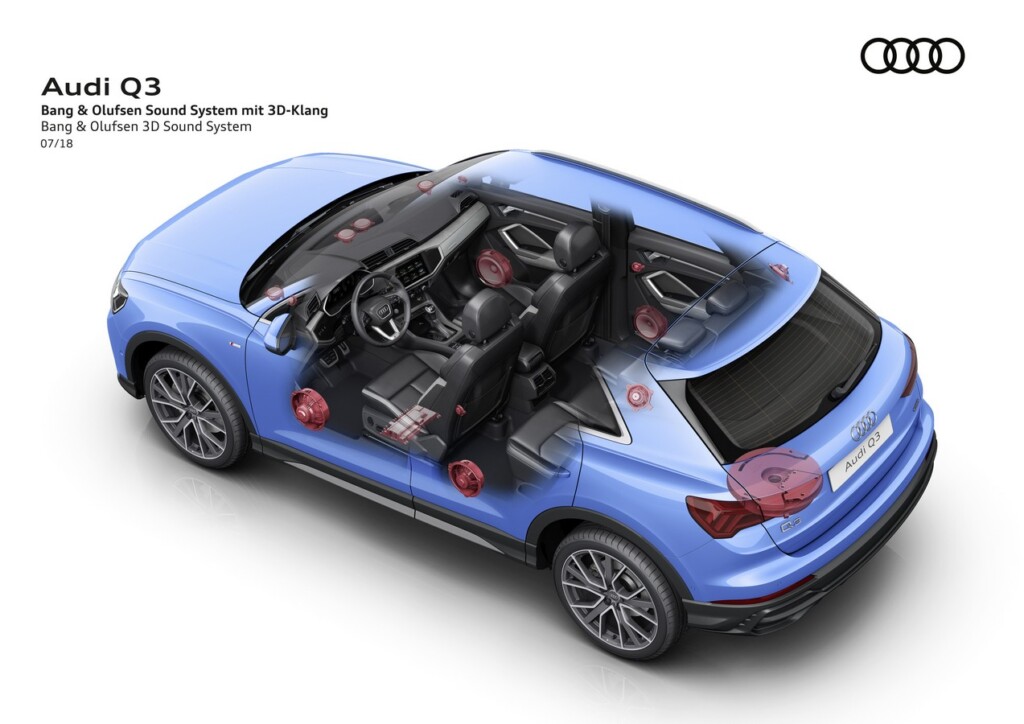
The Bang & Olufsen Premium Sound System with virtual 3D sound provides three-dimensional audio. The sound experience is generated through four additional loudspeakers in the instrument panel and one in each D pillar. A special algorithm that Audi developed in collaboration with the Fraunhofer Institute adds great width and depth to the sound – the interior of the Audi Q3 sounds larger. The sound system uses 15 loudspeakers altogether and produces a total output of 680 watts.
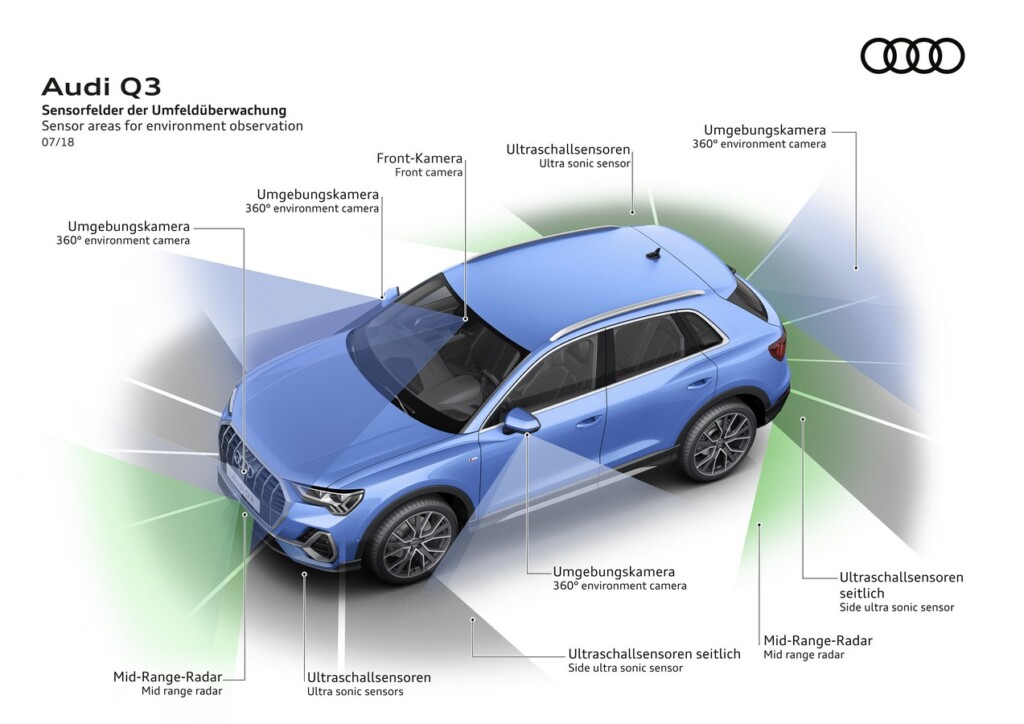
The Audi Q3 is also at the top of its class when it comes to assist systems. The highlight is the adaptive cruise assist, which is available optionally in combination with S tronic. It incorporates the functions of adaptive speed assist, traffic jam assist and active lane assist. In this way it assists the driver with longitudinal and lateral control – substantially enhancing comfort on long journeys in particular. The same applies to the lane change warning. If the two radar sensors at the rear detect a vehicle located in the blind spot or approaching quickly from behind, a warning LED is lit in the relevant exterior mirror.
The Audi Q3 makes maneuvering easier thanks to functions such as the park assist. It steers the SUV automatically into and out of parking spaces. The driver only has to accelerate, brake and shift gears. If the driver wants to reverse out of a parallel parking space or a tight entrance, cross traffic assist is activated. The system monitors the area behind the vehicle using two radar sensors and alerts the driver in critical situations. The four 360 degree cameras provide another useful function. They show on the large infotainment screen the immediate surroundings of the Audi Q3 when moving at speeds up to 10 km/h (6.2 mph). Touch operation allows the driver to switch between various views. In addition to the virtual bird’s eye view, the reversing camera view and the front and rear 180° panoramic view, there is a detailed view of the front and rear wheels. This enables the driver to maneuver precisely up to the curb.
The Audi Q3 comes as standard with the Audi pre sense front safety system. It detects critical situations involving pedestrians, cyclists and other vehicles using the radar and provides the driver with a visual, audible and haptic warning. If necessary it initiates emergency braking. The standard specification also includes the lane departure warning. It is active from speeds of approximately 60 km/h (37.3 mph) and helps prevent the vehicle inadvertently drifting out of the lane. If the driver has not set an indicator and the car is about to cross the lane markings, the system assists with corrective steering intervention. As an option, the driver can set the steering wheel to provide an additional vibration.
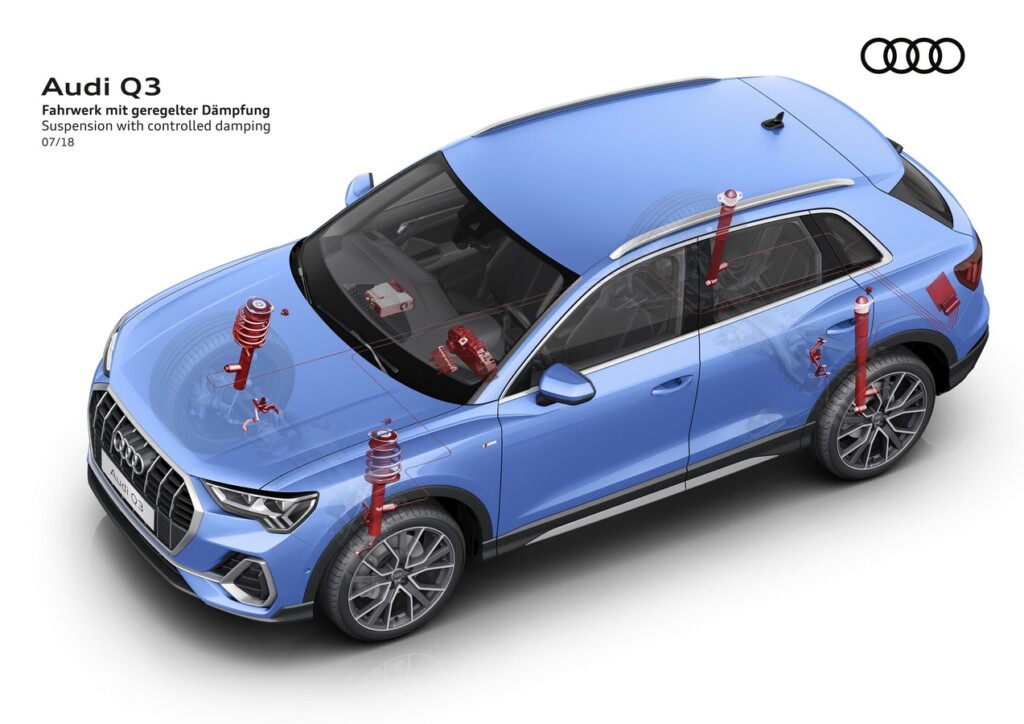
As part of the sales launch, Audi is delivering the new Q3 with four engine versions – three gasoline and one diesel unit in combination with front-wheel or quattro drive. Their power outputs range from 110 kW (150 hp) to 169 kW (230 hp). All engines are four-cylinder direct injection units with turbocharging. They are powerful, refined and efficient. A six-speed manual transmission or a fast-shifting seven-speed S tronic is used to transmit the power. Offroad the permanent all-wheel drive delivers excellent driving pleasure with optimum traction and supreme stability. Activated at the push of a button, the optional hill descent control maintains the preset speed on a steep downhill gradient.
Maneuverable in town, agile on country roads, balanced on the highway – the suspension on the Audi Q3 offers a wide spread. The sporty character of the predecessor model has been retained, but enhanced with a clear dose of additional comfort. The new SUV takes bumpy roads with ease – thanks also to the longer wheelbase. As an option, the driver can vary the characteristics of the Audi Q3 depending on the driving situation, road conditions or personal needs using the Audi drive select dynamic handling system. It offers six profiles – from markedly comfortable, highly efficient through to out-and-out sporty. The system influences the throttle response, steering and shift characteristics of the S tronic as well as the optional suspension with damper control. Here sensors measure the movements of all four wheels plus lateral and longitudinal acceleration. The dampers are then adjusted accordingly to the road surface conditions and driving situation. This results in enhanced driving dynamics with even more comfort. Alternatively, there is the sport suspension – standard with the S line exterior package – with tauter spring/damper tuning and progressive steering. Its ratio becomes increasingly direct with increasing steering angle, adding substantially to the light-footed handling of the new Audi Q3.
The front axle of the compact SUV is based on the McPherson principle; the rear axle adopts a sophisticated four-link design. The track widths are 1,584 millimeters (5.2 ft) and 1,576 millimeters (5.17 ft) respectively. The format of the aluminum wheels ranges from 17 and 18 inch – depending on the exterior trim – up to 20 inch in diameter, the latter from Audi Sport GmbH and fitted with size 255/40 tires.

Design Sketch 
Design Sketch 
Design Sketch 
Design Sketch 
Design Sketch 
Design Sketch 
Design Sketch 
Design Sketch 
Design Sketch 
Design Sketch 
Dynamic photo Colour: Turbo blue 
Static photo Colour: Turbo blue 
Static photo Colour: Turbo blue 

Static photo Colour: Turbo blue 
Static photo Colour: Turbo blue 
Dynamic photo Colour: Turbo blue 
Static photo Colour: Turbo blue 
Static photo Colour: Turbo blue 
Static photo Colour: Turbo blue 
Dynamic photo Colour: Turbo blue 
Static photo Colour: Florett silver 



Static photo Colour: Florett silver 

Interior 
Interior 
Cockpit 
Interior 
Interior 
Dimensions 
Suspension 
Suspension with controlled damping 
Dashboard 
Bang & Olufsen 3D Sound System 
Sensor areas for environment observation 
HD Matrix LED headlight: Main beam 
LED rear lights: Bracking lights
Other posts by Mark Leo

